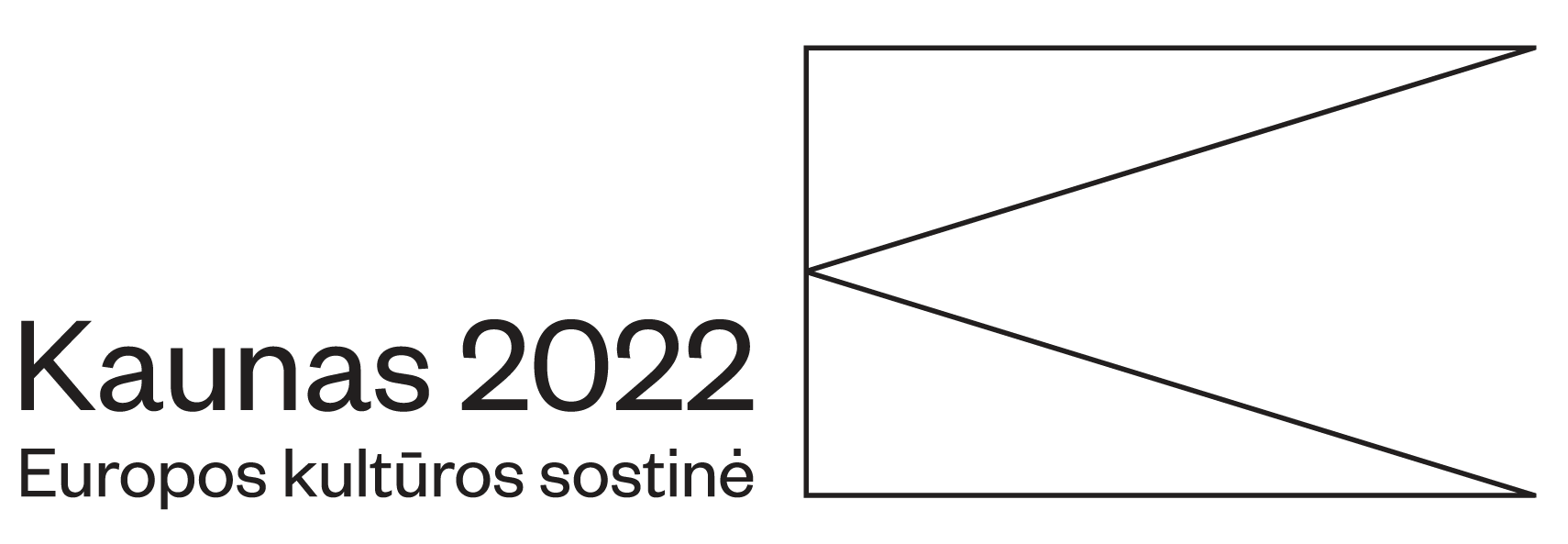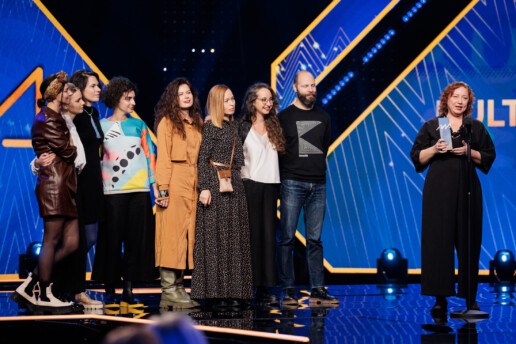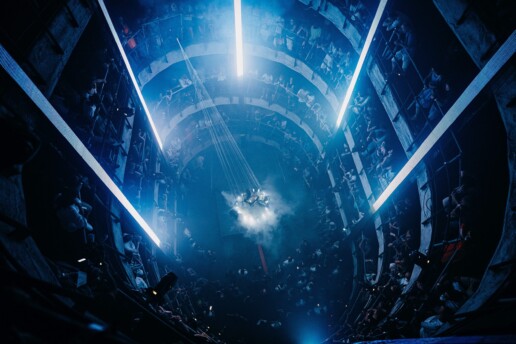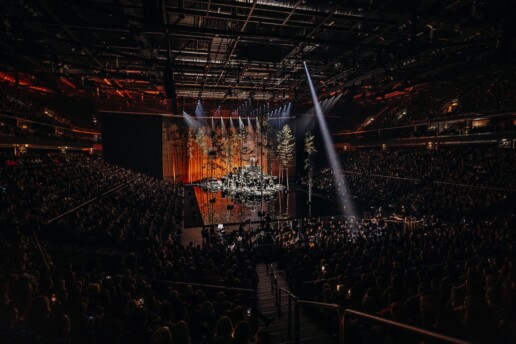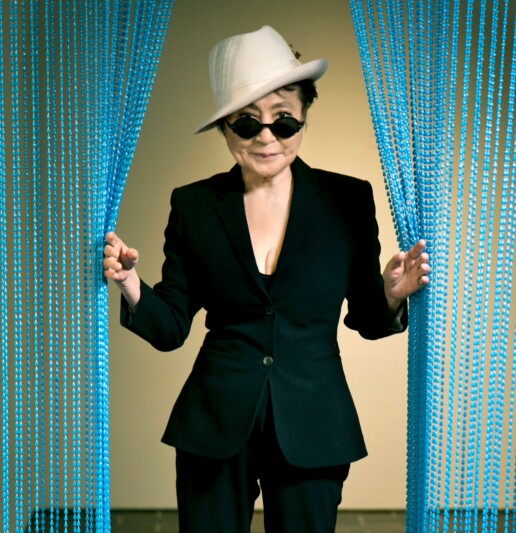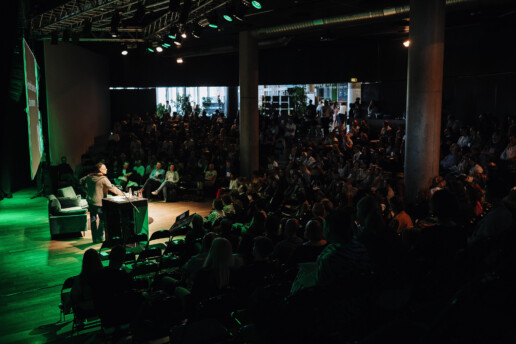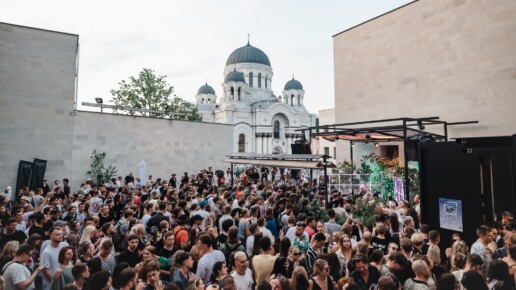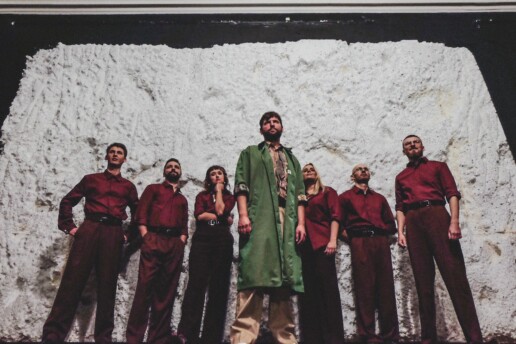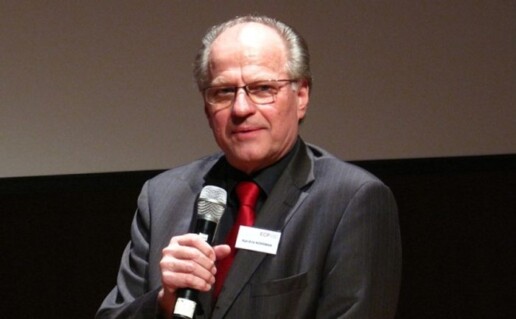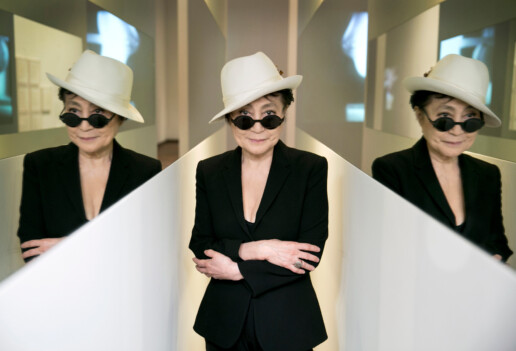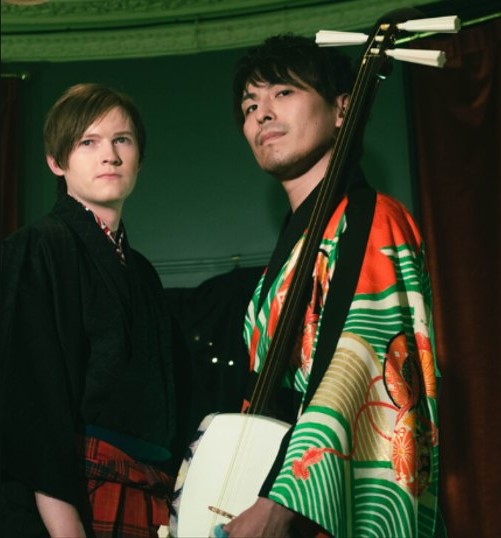Lithuanian National Radio and Television Annual Awards presented: Kaunas 2022 was chosen as the cultural phenomenon of the year
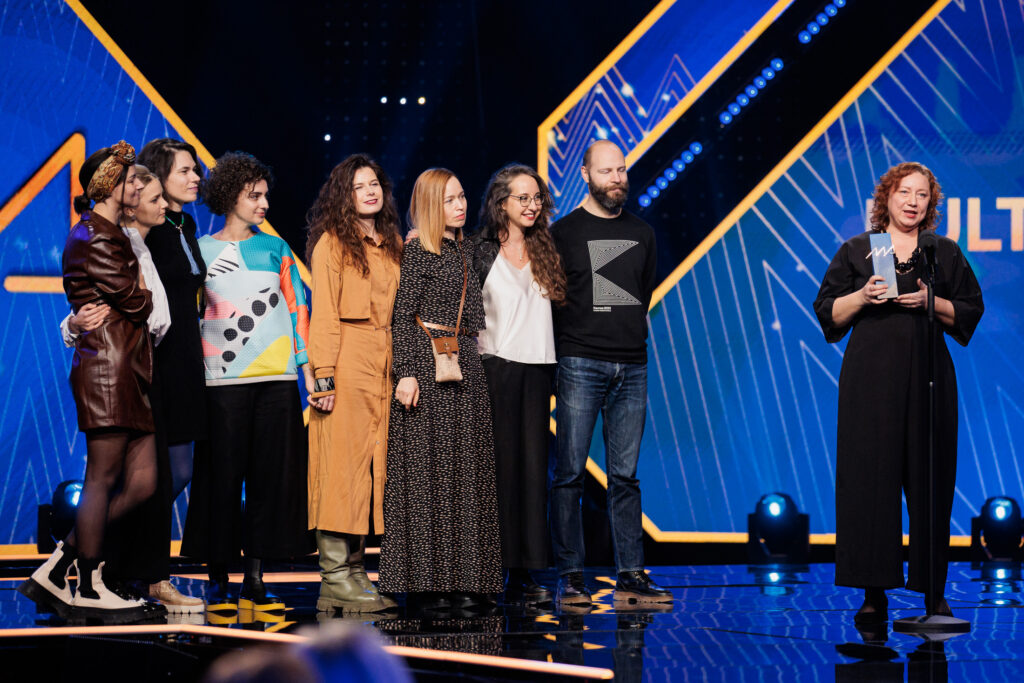
For the fifth time, Lithuanian National Radio and Television (LRT) invited to remember the most prominent events, personalities, initiatives, and achievements of 2022, which inspired us all and helped Lithuania focus, grow and improve. The winners were honoured at the LRT Annual Awards ceremony, where there was also no shortage of words of thanks to those who support Ukraine.
The solemn evening was not missed by a group of prominent public figures, representatives of sports, art, and culture, who entered the LRT big studio on the blue carpet of the ceremony.
Of course, the most important note of the evening was the honouring of the brightest people and initiatives of 2022. “The list of this year’s nominees represents the pulse of the entire year. Civic initiatives that have done and continue to do great things to help people affected by the war in Ukraine, who came to live in Lithuania, and continue to help those who remained to fight for the country's freedom, were prominent.
Surnames, initiatives, organizations, which aimed to help Ukrainian people, herewith encouraging all of us to grow as a nation, were among the nominees. We had engaging cultural projects, and our athletes again successfully managed to have the Lithuanian national anthem played at the biggest sports championships. I’m also happy that the achievements of the scientists of our country, which are valued in the whole world, are not forgotten in these Awards”, - Monika Garbačiauskaitė-Budrienė, the general director of LRT said before the celebratory Awards ceremony.
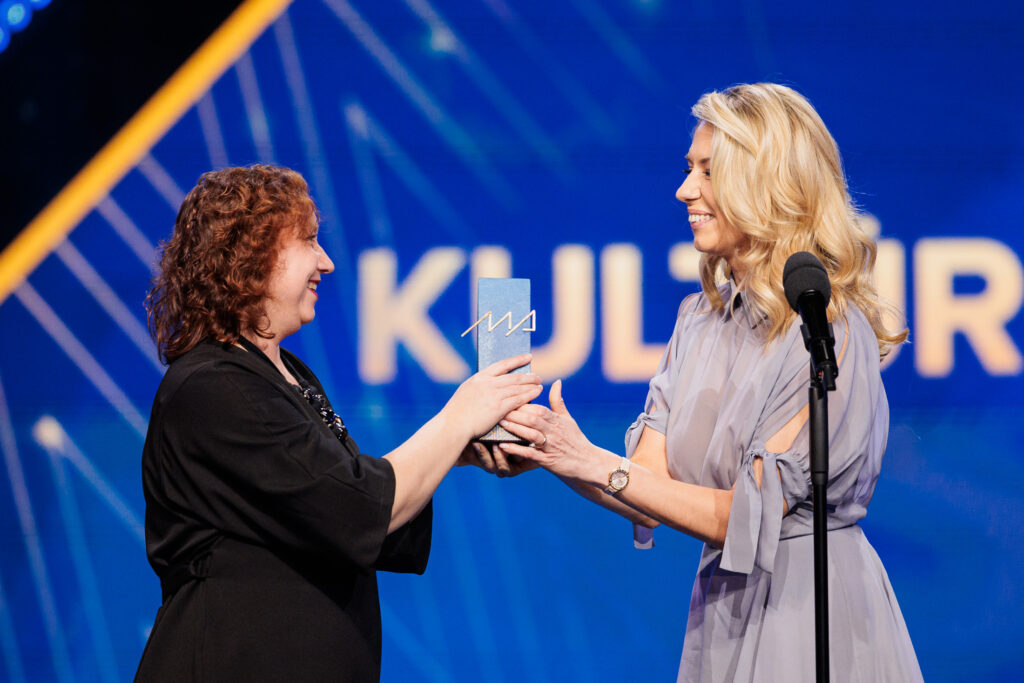
The "Kaunas 2022" project was declared the cultural phenomenon of the year in these Awards. “Maybe it wasn’t that difficult to get so many votes from LRT.lt readers because the voters were a part of cultural capital, the visitors and creators themselves. This award is an achievement of all creators and attendees. We felt special because we received the attention of so many Lithuanians and Europe”, - Virginija Vitkienė was happy to remember that a huge team worked on this project.
She admitted that the war, which started in February last year, shook them, but a huge team was able to not give up and included supportive initiatives for Ukraine into the programme – the cultural centre of Ukraine, which allowed the initiatives of Ukrainians living in Kaunas to unfold throughout the year, was established in Central Kaunas Post Office.
When the European Capital of Culture title returned to Lithuania after a twelve-year break, Kaunas prepared for it for five years, devoting most of its forces, time and finances to involve the citizens as much as possible. ECOC team assures, that the rich life in Kaunas won’t stop after the project is over.
During the year, about 40 festivals, more than 60 exhibitions, over 250 performing arts events, and over 250 concerts took place in Kaunas and the Kaunas district. The events attracted over one and a half million visitors. A lot of attention was paid to the topics of human rights, freedom of speech, respect for everyone, and culture for everyone.
LRT.lt reminds that the nominees were proposed and selected by the LRT Annual Awards working group, which has been actively working for the third year, made up of journalists from different fields, who have been closely following Lithuanian events throughout the year.
You can see all the awardees here.
“Kaunas – European Capital of Culture 2022” Programme Concludes: Key Figures and Future Plans Revealed
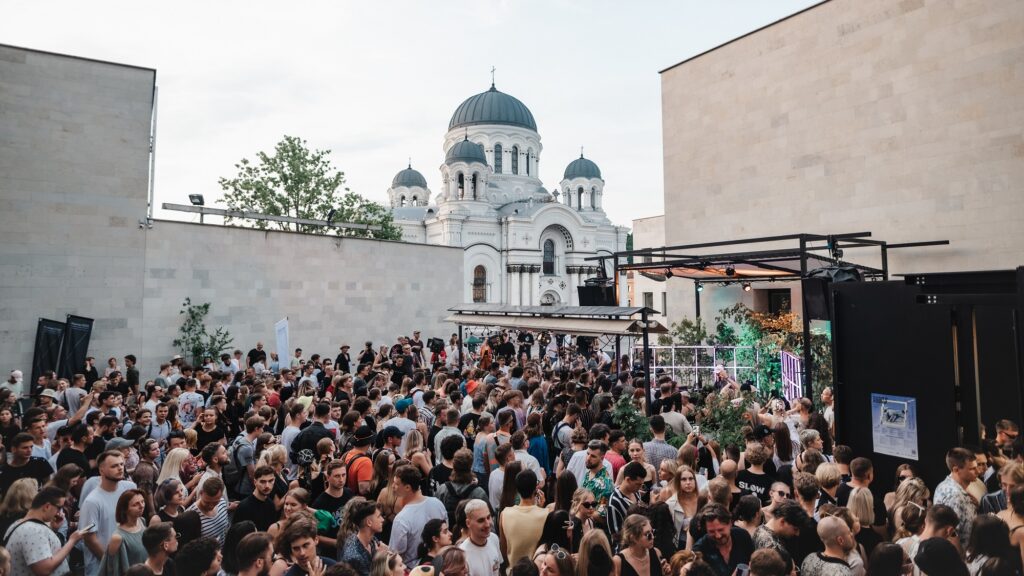
Having attracted 2.4 million visitors in 5 years, “Kaunas – European Capital of Culture 2022” can be hailed as a success story. A programme which has delivered over 3000 events to guests from all over the world, increased tourism, international media attention, and a huge number of participants – these were some of the major achievements and legacies of the Capital of Culture that were discussed by the Lithuanian Minister of Culture Simonas Kairys, “Kaunas 2022” CEO Virginija Vitkienė, and the Head of Communications and Marketing Mindaugas Reinikis at the last “Kaunas 2022” press conference held on Monday.
The journey of “Kaunas 2022” from a temporary capital to a contemporary one began back in 2015 with the preparation of the application for the European Capital of Culture competition. In March 2017, it was revealed that Kaunas’s proposed programme had convinced the selection panel of independent experts, and the city was awarded the title of European Capital of Culture, the EU’s most important cultural project, for the year 2022.
“I expected it to be sad when the title-holding year came to an end, but today I feel that many great things are only just beginning, and how they move forward will depend entirely upon us,” said the Republic of Lithuania’s Minister of Culture, Simonas Kairys, in his opening remarks. According to Kairys, 2022 has been an extraordinary year that has changed the rules of the game considerably – the pandemic, the war in Ukraine and other challenges have forced the organisers to look at the project differently and to adapt to the current situation.
“I believe the project’s greatest objective was to make everyone realise that we are part of the European cultural scene: that it is important to create opportunities for dialogue and international cooperation, and to be open-minded. [...] This title reminds the rest of the world that we have been a part of Europe for centuries, that even after 50 years of being stuck in a dark and difficult tunnel, today we are back in the European family,” the Minister of Culture said.
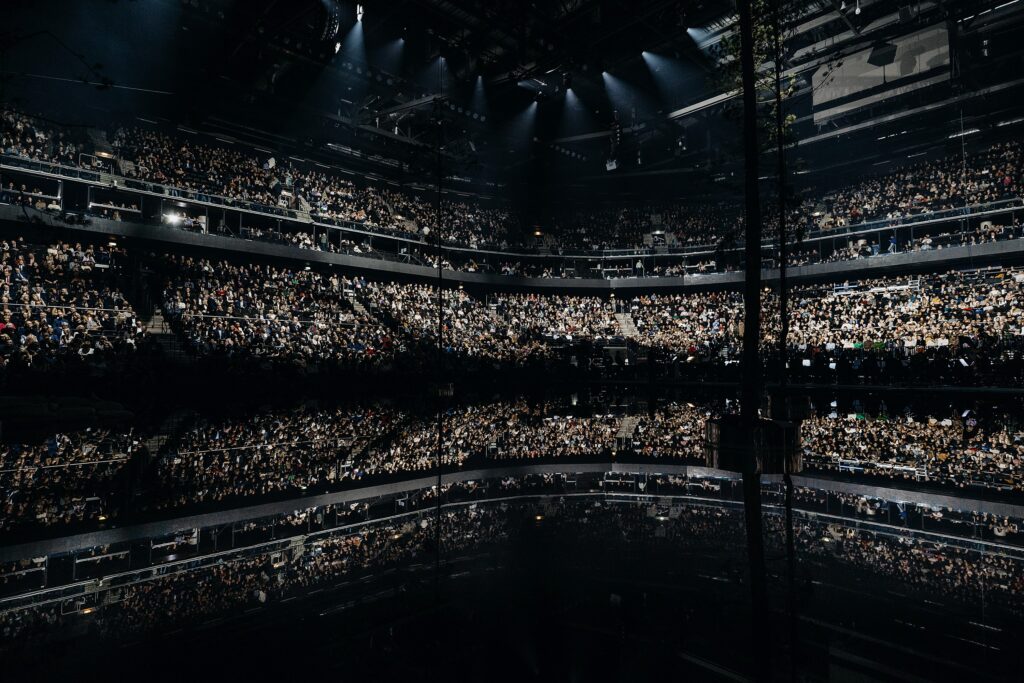
Record Numbers of Visitors and Artists Involved
Over the five years of the project’s implementation, according to Virginija Vitkienė, CEO of Kaunas 2022, 2.4 million culture lovers have attended a variety of events – festivals, concerts, exhibitions, performances, contemporary dance performances and other artistic initiatives. Over half of them visited events in 2022.
19,000 artists and creators from all over the world – Europe, Japan, the USA, South Africa, Israel, and elsewhere – contributed to creating the Capital of Culture in Kaunas and Kaunas District. Yet most of the events, 70 percent, were created and implemented by Lithuanian artists. In 2022 alone, Lithuanian and international artists organised 1,600 cultural initiatives open to the public in Kaunas and Kaunas District.
A total of 26 million euros has been earmarked for European Capital of Culture projects, or 13 euros per person over five years. More than 50 donors and partners contributed to the cultural initiatives, with a total value of 2.8 million euros in financial support and services.
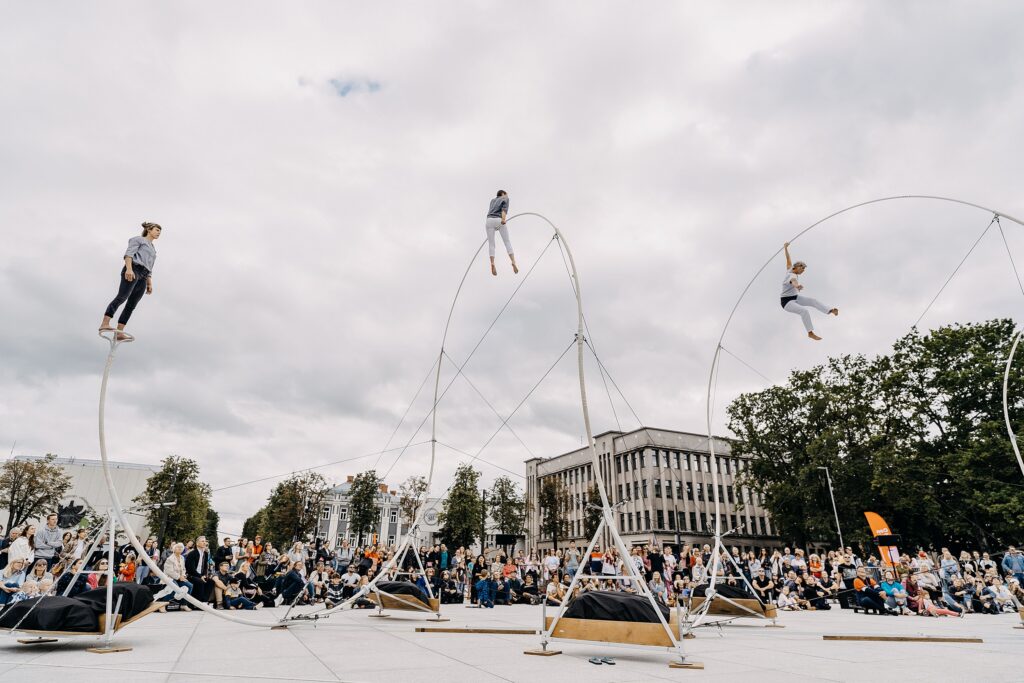
From the BBC and The Guardian to National Geographic
The head of the initiative, Virginija Vitkienė, emphasised that the Kaunas 2022 project gained visibility not only in Lithuania, but also worldwide – in 66 countries in total in Europe and beyond, including the US, India, the United Arab Emirates, Canada, South Africa, South Korea, and Singapore. Over 170 foreign journalists visited the city.
National Geographic, a popular science magazine boasting 6 million readers, noted that Kaunas is “finally getting the plaudits it deserves.” The Telegraph reported that “in Kaunas, the Twenties are roaring once more,” while The Guardian listed the Capital of Culture among the 10 best European city breaks with a difference.
Kaunas has also been covered by the BBC, CNN, The Times, Rai, Deitsche Welle, Financial times, Euronews, and other news sites. It is estimated that news about Kaunas 2022 has reached more than 3 billion people worldwide. Foreign media representatives were attracted not only by the ongoing events, but also by street art, the themes related to memory, Kaunas modernist architecture, and the appearances made by world-renowned artists.
According to Mindaugas Reinikis, Head of Communications and Marketing, “Kaunas has now appeared on maps where it has never featured before, but this will probably take a few decades, or even centuries, to be fully grasped and appreciated.”
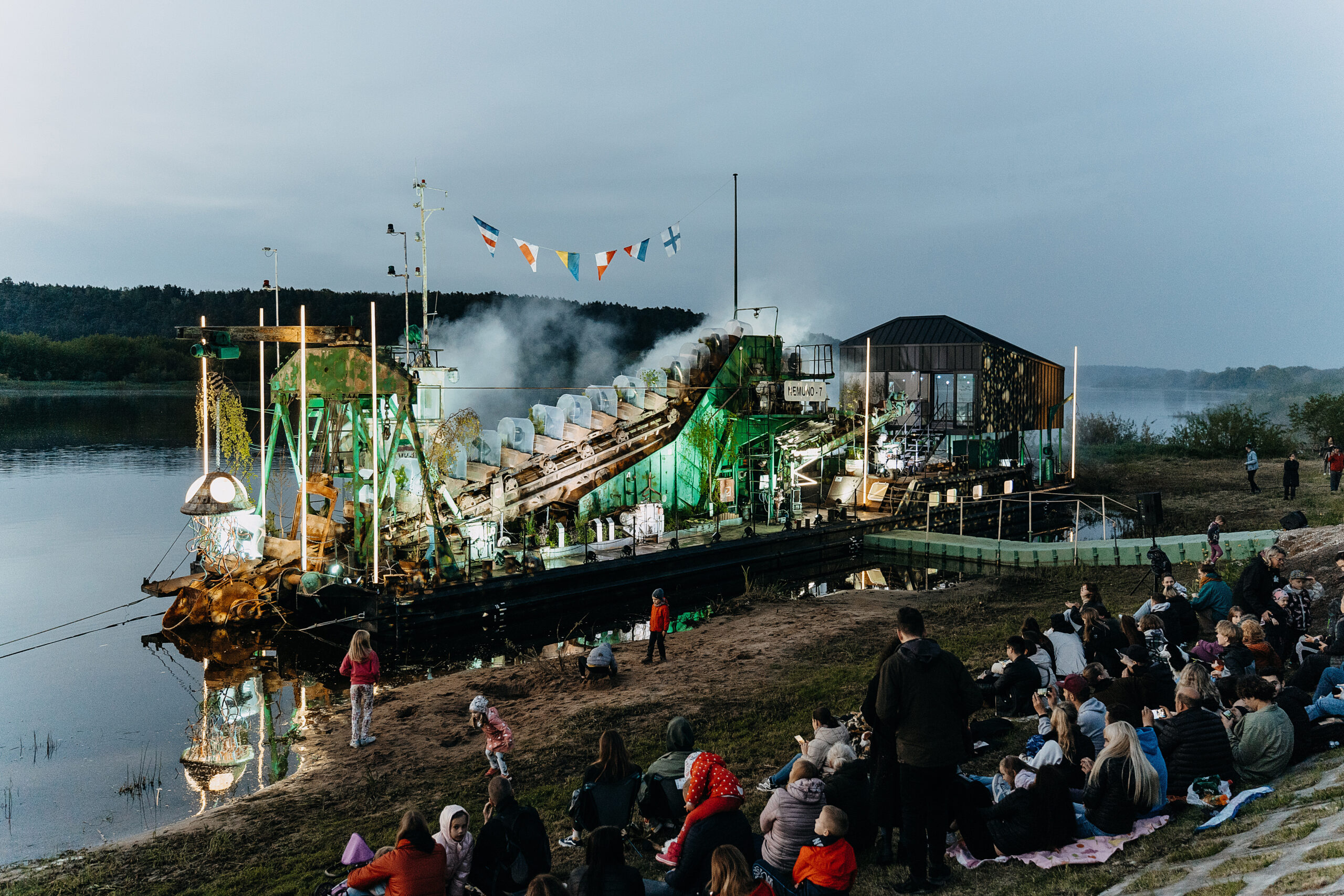
Tourism Boost
International press attention and high-profile artistic events and exhibitions have led to an increase in tourist visits. In 2022, Kaunas accommodated stays from over 309,000 tourists, the majority of whom were from Germany, Italy and neighbouring countries – Poland, Latvia and Estonia. It was pleasing to see that increasingly more people were choosing Kaunas for more than a single-day trip, spending a whole weekend or a few days in the city.
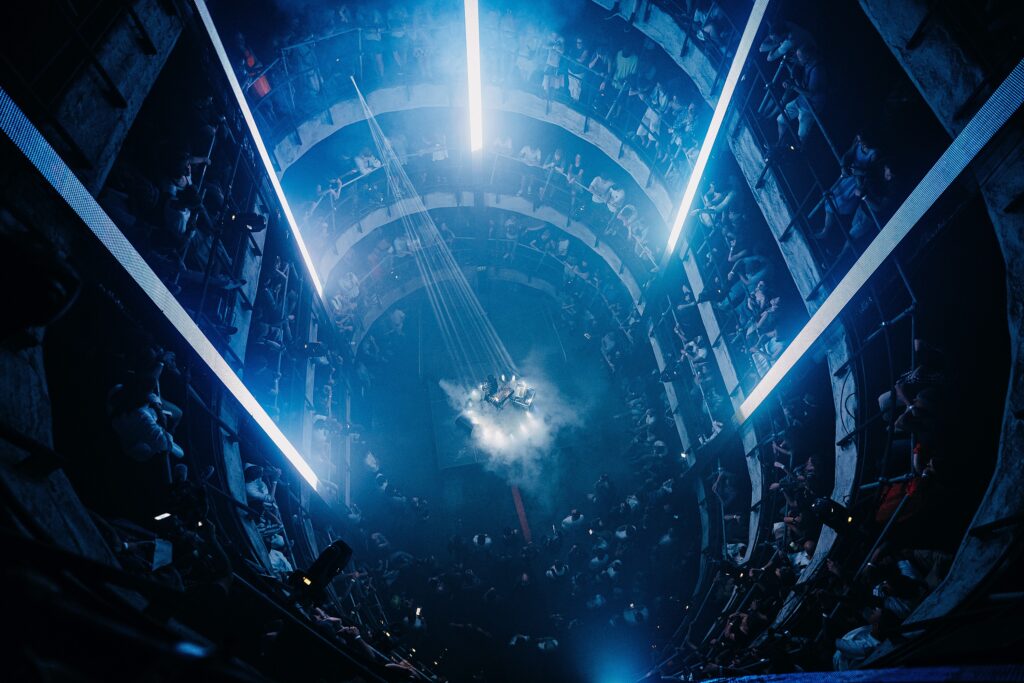
From New Cultural Spaces to Festivals Turned into Traditions
A number of popular festivals and events have become an integral part of the city and its surrounding district. The International Day of Happiness, Kaunas Literature Week, and the Fluxus Festival, which has now become a tradition, will continue to attract visitors and residents of the city. Culture to the Courtyards, Citytelling Festival and the international performing arts festival ConTempo will keep on bringing music and performances to Kaunas’s neighbourhoods. Design enthusiasts will remain warmly-welcomed participants at the MAGENTA Landscape Design Festival. The European Capital of Culture Forum and the much-loved Contemporary City Festival AUDRA will also carry on. And in Kaunas District, the community project “Contemporary Neighbourhoods” will continue to take place.
The CulturEukraine co-working space, launched in 2022, will continue to run its activities in the city, as well as the Kaunas Central Post Office, which has now been transformed into an exhibition venue and event space. The Kaunas Airport, which was renamed as the Kaunas Fluxus Airport, and the sculpture of the Mythical Beast of Kaunas, beloved by children, will serve as reminders of this historic year. Over 1,000 artworks, sculptures and publications created in recent years are going to be exhibited in various art institutions across Kaunas and Kaunas District.
A Path of Emerald, the route touring public art objects, featuring 50 works by Lithuanian and international artists, will remain in operation in Kaunas District, as well as the dredger-boat “Nemuno 7,” located in Zapyškis, now turned into a space of art and culture.
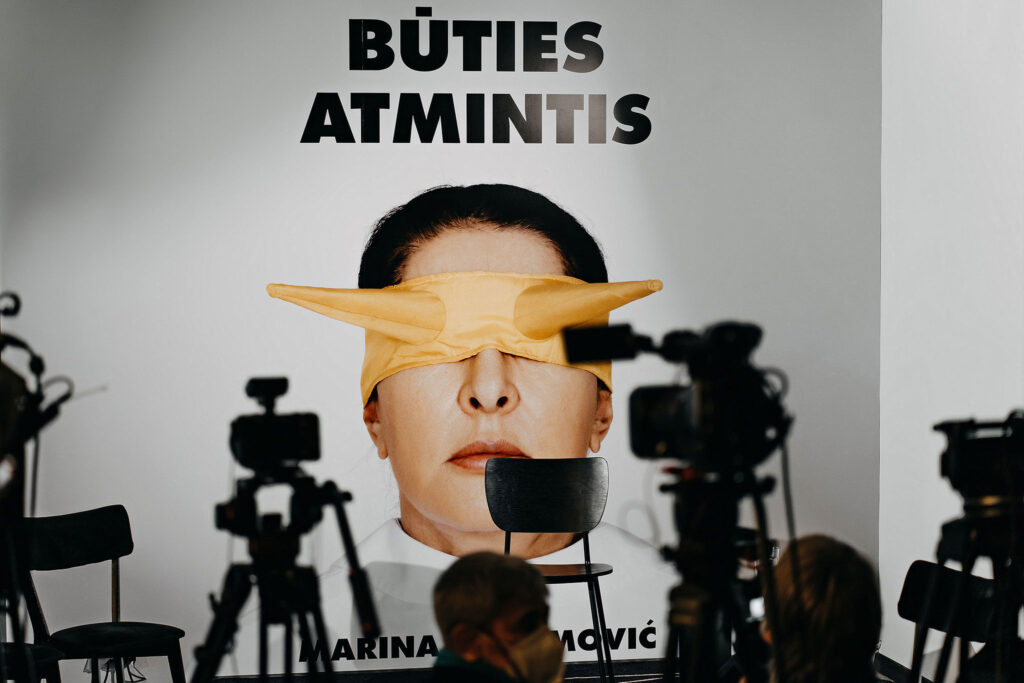
The Capital of Culture Bids Farewell with 2022 Kisses
The most important component of “Kaunas – European Capital of Culture 2022,” as Virginija Vitkienė, the Head of “Kaunas 2022,” points out, is the people who have contributed to this project: artists, representatives of the cultural scene, communities, volunteers, and partners, transforming Kaunas into one big European stage.
As Kaunas passes on the title of Capital of Culture to three other European cities, it bids a symbolic farewell by sending 2022 kisses to Lithuania, Europe and the rest of the world. From the very beginning in 2017, photographer Remis Ščerbauskas has been seeking to capture snapshots of the participants of the Capital of Culture events, community members, artists, Kaunesians and the city’s visitors, volunteers, the project’s implementation team, and all those who have often stayed away from the limelight. All these people had been pouring their energy into taking the city’s culture to a new level in the run-up to the title-holding year.
“Each European Capital of Culture is unique and exceptional. Still, it is gratifying to receive positive comments, for example, suggesting that Kaunas has made the European Capital of Culture project fashionable once again. You will certainly be hearing more from us in the future.” The press conference ended on a high note.
“Kaunas 2022” Closing Weekend: Kaunas is Forever
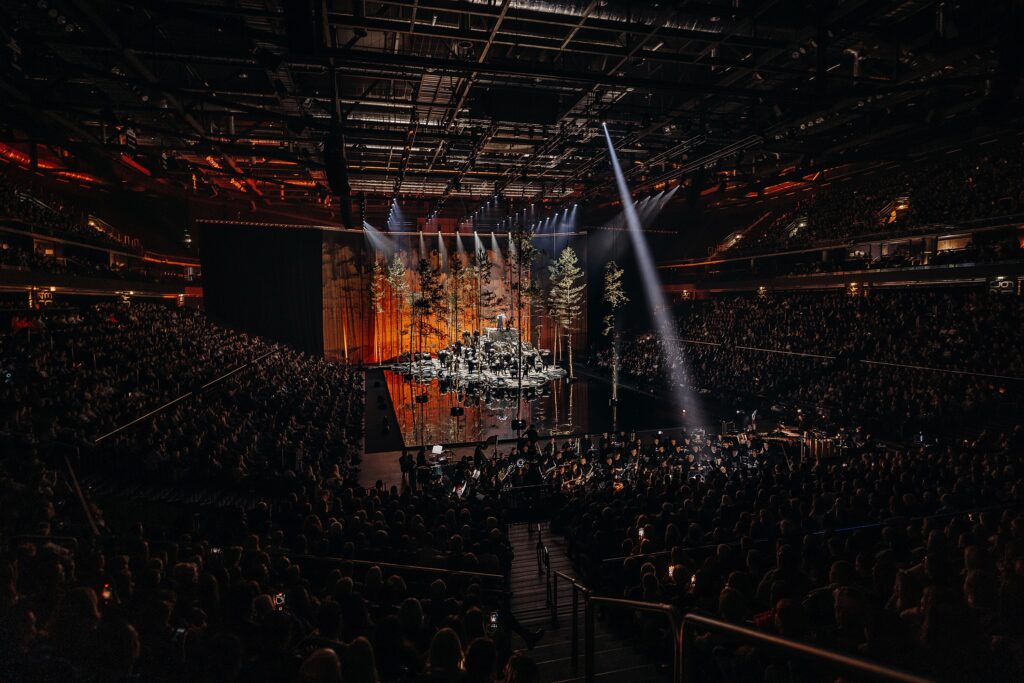
The results of the last official weekend of Kaunas as the European Capital of Culture can be counted in dozens, hundreds and thousands. The intersecting routes of events and happenings, the collecting of the stamps of the Kaunas Beast game and the sharing of promises to take care of yourself and the city, the handshakes and hugs, the shining eyes and the lights of the phones, the final chords of the “Contract” at Žalgirio Arena - Kaunas and Kaunas district were flooded with the hope that after a spectacular year-long programme, the positive, motivating and nurturing relationship with oneself and one’s environment, in which culture is the key element, will not vanish.
Europe’s focus on Kaunas
“Many think that culture is just for fun. However, it is the foundation of our society and soul, an integral part of life. I personally believe that the European Capitals of Culture tradition is one of Europe’s most successful programmes, creating a sustainable positive effect. Culture teaches, transforms, gives hope and perspective, inspires unity and solidarity,” Romanian President Klaus Iohannis said on Friday morning. Together with the leaders of Lithuania, Latvia and Poland, and Ukraine’s president Volodymyr Zelensky, who joined online, he opened the international symposium “The Idea of Europe”. The gathering of intellectuals - academics and practitioners - at Vytautas Magnus University was the most solid event of the “Contract” weekend. Its weight and depth of debate proved the importance of one of the continent’s smallest countries and the city that has this year been awarded the most important title in its life and has withstood global challenges with the title’s help.
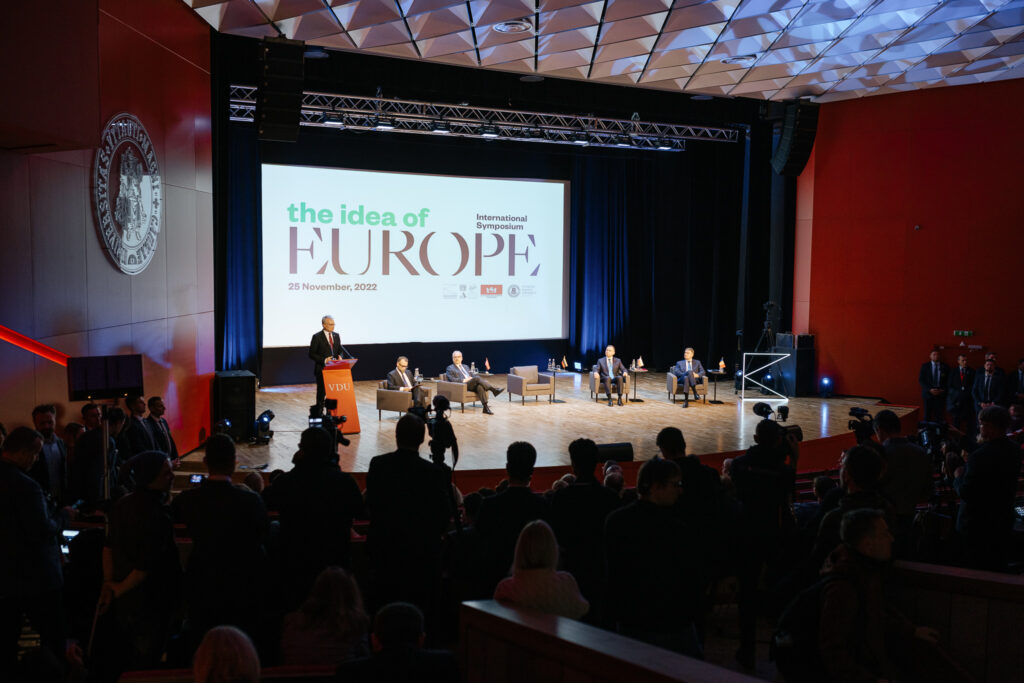
Nurturing Sounds of Music
From the Lithuanian Youth Jazz Orchestra’s resounding debut concert and a bouquet of Yiddish songs at the Kaunas Artists’ House, the choral and experimental music event Deserts in the mysterious Kaunas Waters Reservoir, the tabalai experiment in the garden of the War Museum, the avant-garde electronic performances at the Daina cinema, and the nightclub Lizdas - music lovers were spoilt for choice throughout the European Capital of Culture’s extended finishing weekend. An impressive concert was also held in the Kaunas district - on Friday, Raudondvaris was turned into an open-air dance floor by the performer “Ten Walls”.
Of course, the most impressive sound fabric was created on Saturday evening at Žalgirio Arena - “Contract”, written by composer Zita Bružaitė for the occasion, was performed by singers Jeronimas Milius and Monika Pleškytė, Kaunas Big Band, Kaunas Wind Orchestra “Ąžuolynas”, Giunter Percussion and others, conducted by the talented Ričardas Šumila. The combined forces of dancers led by Petras Lisauskas, including Nuepiko, ULNA, and Šeiko Dance Company, as well as emerging talents, created magic for nearly 9,000 spectators.
The “Contract” was created by: author of the artistic concept and composer Zita Bružaitė, librettist Daiva Čepauskaitė, director Gediminas Šeduikis, set designer Sigita Šimkūnaitė, costume designer Sandra Straukaitė, choreographer Agnija Šeiko, head of the choir Danguolė Beinarytė, lighting designer Andrius Stasiulis, conductor Ričardas Šumila.
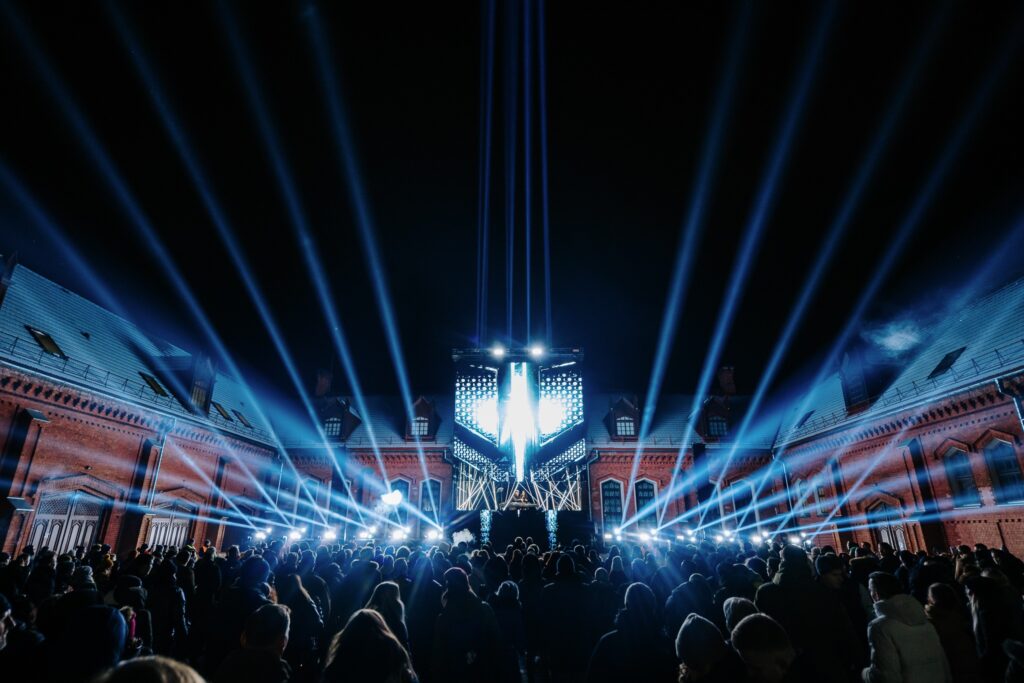
Opening and Closing of Exhibitions
The “Contract” weekend saw the opening of a bunch of exhibitions that will continue to welcome visitors. Ultrasocial Pos by the colourful Polish- Luxembourger Filip Markiewicz is open until New Year’s Day at the Meno Parkas gallery and, in the neighbourhood of the latter, the Kaunas Photography Gallery it’s a must to see an excerpt from The Family of Man, an exhibition presenting the origins of humanist photography that has travelled the world. The Lithuanian Artists’ Union gallery Drobė invited the spectators to look at the fake news from the artists’ point of view in the former textile factory in Šančiai. The photography exhibition “Hiding Places of the Mythical Beast”, which revealed the basements and dungeons of modernist buildings on Vienybės Square, promises to attract the attention of the curious throughout the festive period, most effectively after dark.
The attendance records were also broken by Yoko Ono’s exhibition “The Learning Garden of Freedom” at the Kaunas Picture Gallery, the contemporary art triennial UKRAINE! UNMUTED at Kaunas Central Post Office and William Kentridge’s “That Which We Do Not Remember” at the National M. K. Čiurlionis Art Museum. The international shows, all counting their last days, were explored by both individual guests and guided tours. Meanwhile, Kaunas Modern Art Foundation offered an exclusive itinerary to places important to artists who worked in the city.
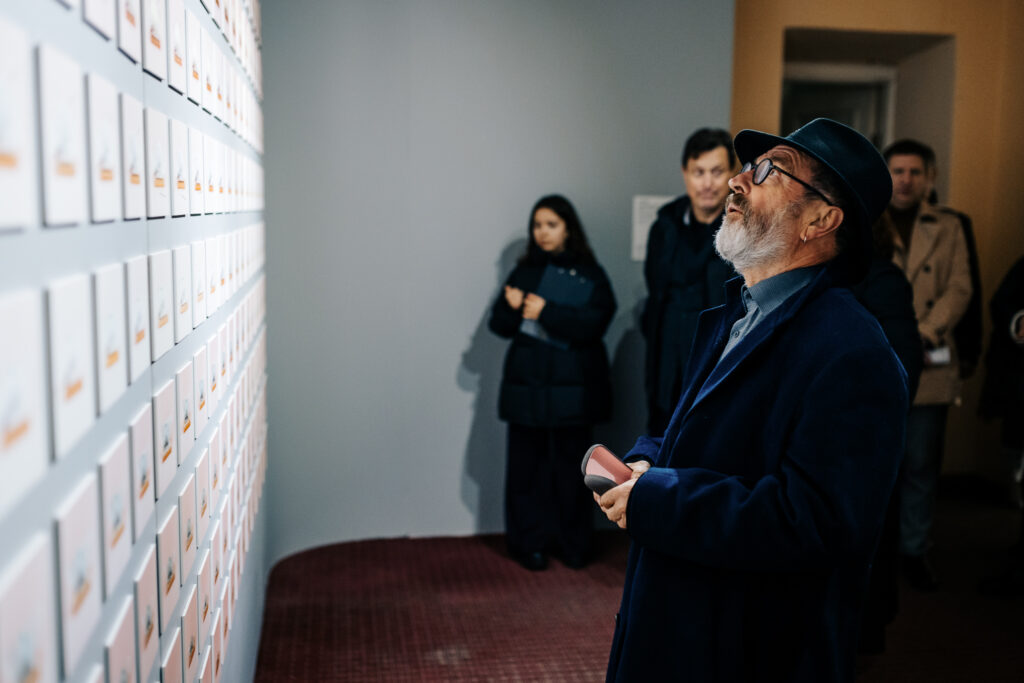
Installations Dispelling the Darkness
The impressions of the “Contract” weekend, which were all over the social networks, were very often filled with art installations in both Kaunas and the Kaunas district. From the city centre, where many cultural institutions and other buildings came together for one spectacular light spectacle, to a narrow street in the Old Town, transformed into an artistic “Artery”; From the installation "Process" in Independence Square, which made everyone pause, to the stairs to the Mythical Beast’s lair, which appeared in the 1st Fort of Kaunas Fortress just for this weekend - all the artistic accents underlined that Kaunas is not only a beautiful city but also a city that wants to be happy in the future.
A contract with Oneself
The most important souvenir of “Kaunas 2022” a contract signed with oneself and the city - was taken home by almost 4000 participants of the closing weekend. Just as during the first two acts of the Kaunas trilogy, “Confusion” and “Confluence”, people followed rules and collected stamps provided by colourful characters waiting at the game stops.
Every city is beautiful. Every city is a city of love. Every city is like Kaunas and Kaunas is like every city. Every city has suffered in the past. Every city wants to be happy in the future. People we know are good people. People we don't know are good people. People we don't understand are good people. My freedom depends on the freedom of others. Kaunas is forever. These points in the „Contract“ reminded everyone to take care of themselves, others and the city.
The signing ceremony of the “Contract”, which was not only visually spectacular but also personally dedicated to each individual, took place hundreds of times in a wishing-washed underpass by the river Nemunas. And, of course, in the hearts and minds of everyone who has lived through Kaunas’ transformation “from temporary to contemporary”. After all, as the last clause of the “Contract” proclaims, Kaunas is forever.
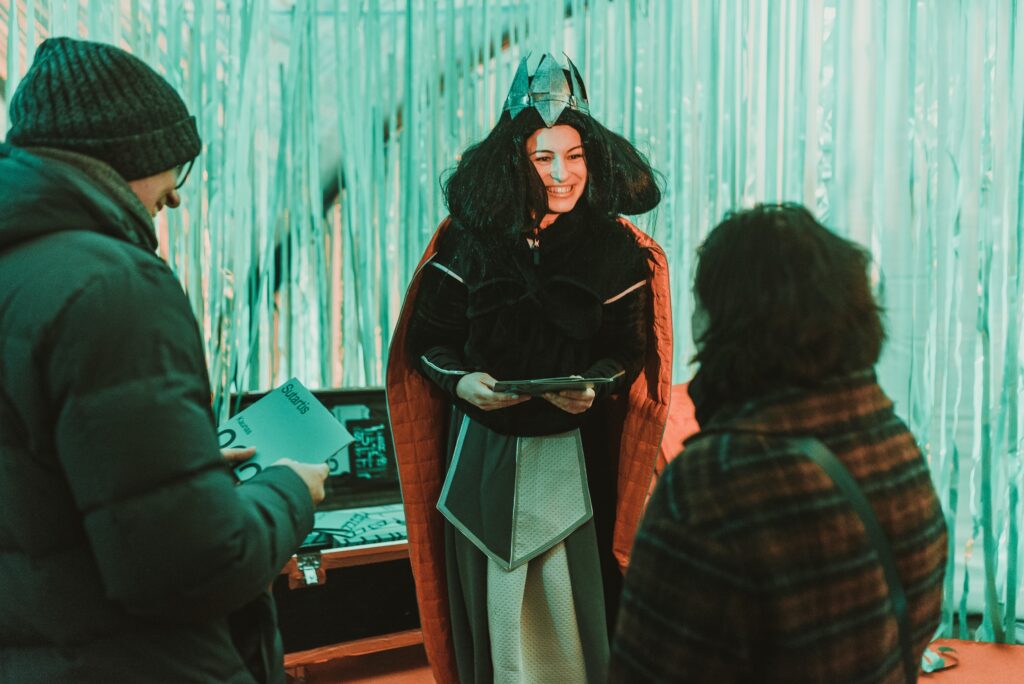
September in Kaunas – world renowned names, premieres and exhibition openings: what not to miss?

Autumn’s first month is once again inviting us to return to cinema, theatre, and concert halls. September also brings a host of European Capital of Culture premieres, from the launch of the modernist film Folds (Klostės) to the long-awaited Kaunas Cantata and the opening of Yoko Ono’s exhibition. Kaunas 2022 is pleased to share their recommendations on what to see and what not miss in the autumnal city.
Yoko Ono’s retrospective exhibition The Learning Garden of Freedom
The Learning Garden of Freedom is a retrospective exhibition of Yoko Ono’s work organized in collaboration with Studio One in New York, founded by the artist herself, the Contemporary Art Centre in Vilnius, and Kaunas Picture Gallery in Kaunas. The exhibition presents an overview of Yoko Ono’s works, including various creative periods and practices ranging from conceptual art and experimental films to spatial installations, objects and performance art.
When: 10 September – 4 December
Where: Kaunas Picture Gallery, K. Donelaičio St. 16
See here for more information.
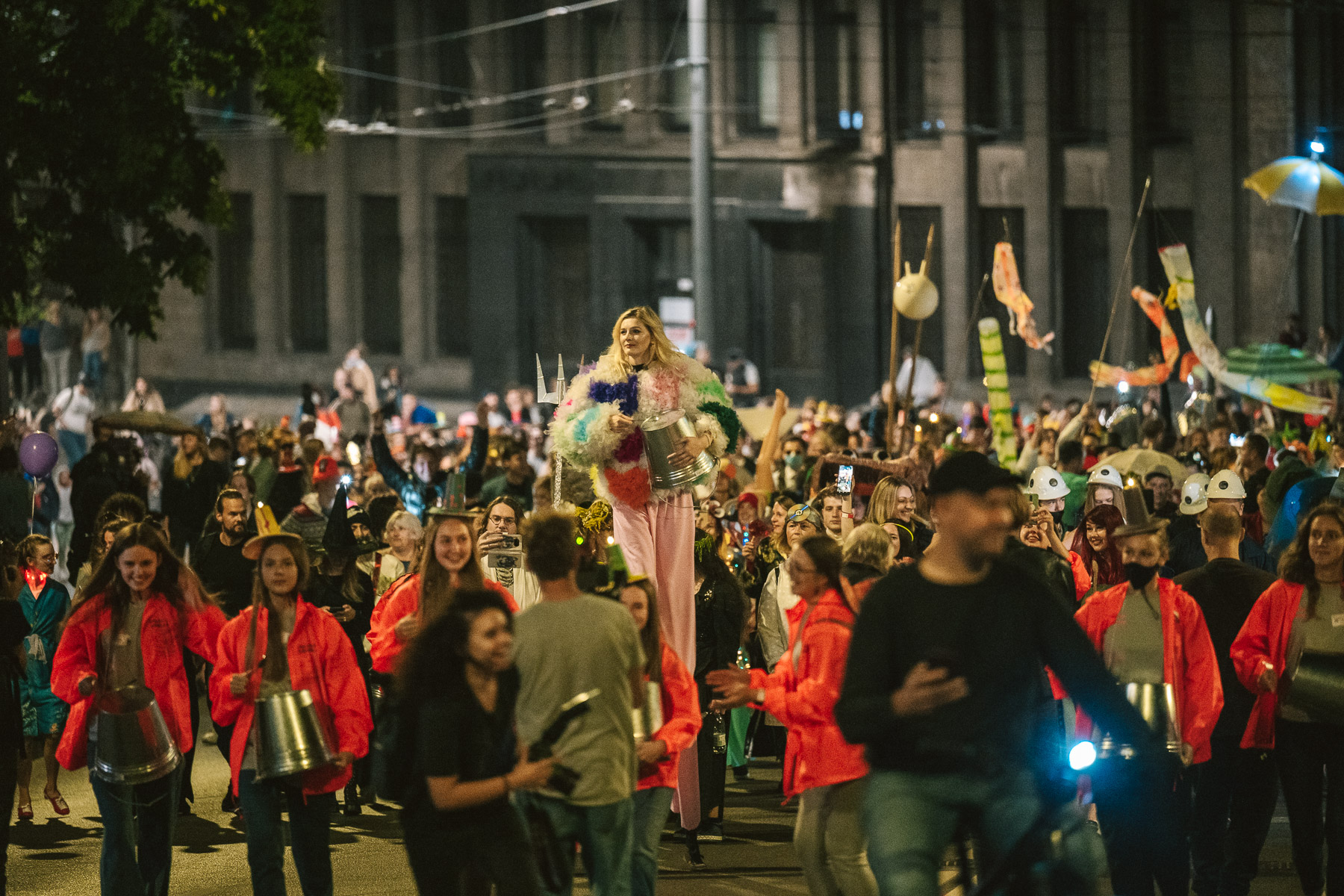
Fluxus Festival
On 10 September, Kaunas welcomes a return of the Fluxus Festival, organized by the Kaunas 2022 community programme Fluxus Labas. A festival that has become a tradition in the city will, this year, evolve into the biggest event of its kind ever. Expect the unexpected in original performances by Lithuanian and foreign artists who love to smile at life as well as the flamboyant climb up the Parodos Hill, the highlight of the festival.
When: Fluxus Climb – 10 September, 10 p.m.
Where: Parodos Hill
See here for more information
Litvak Culture Forum by Kaunas 2022
On 29–30 September, Kaunas 2022 will invite Litvaks scattered throughout the world to return, even if only briefly, to their ancestral land and gather at the Litvak Culture Forum for Kaunas residents and visitors. Over several days, this event will feature a rich cultural programme and discussions with renowned artists, researchers, and cultural figures, and is open to everyone interested in the city’s history. Guest speakers include: Prof. Antony Polonsky, Prof. Peter Salovey, Prof. Tsvia Walden, artists Michael Shubitz and Bruce Clarke, and many others. Patron of the Forum – Prime Minister of the Republic of Lithuania Ingrida Šimonytė. Honorary patron – Prof. Liudas Mažylis
When: 29–30 September
Where: Great Hall, Vytautas Magnus University, S. Daukanto St. 28
See here for the full programme.
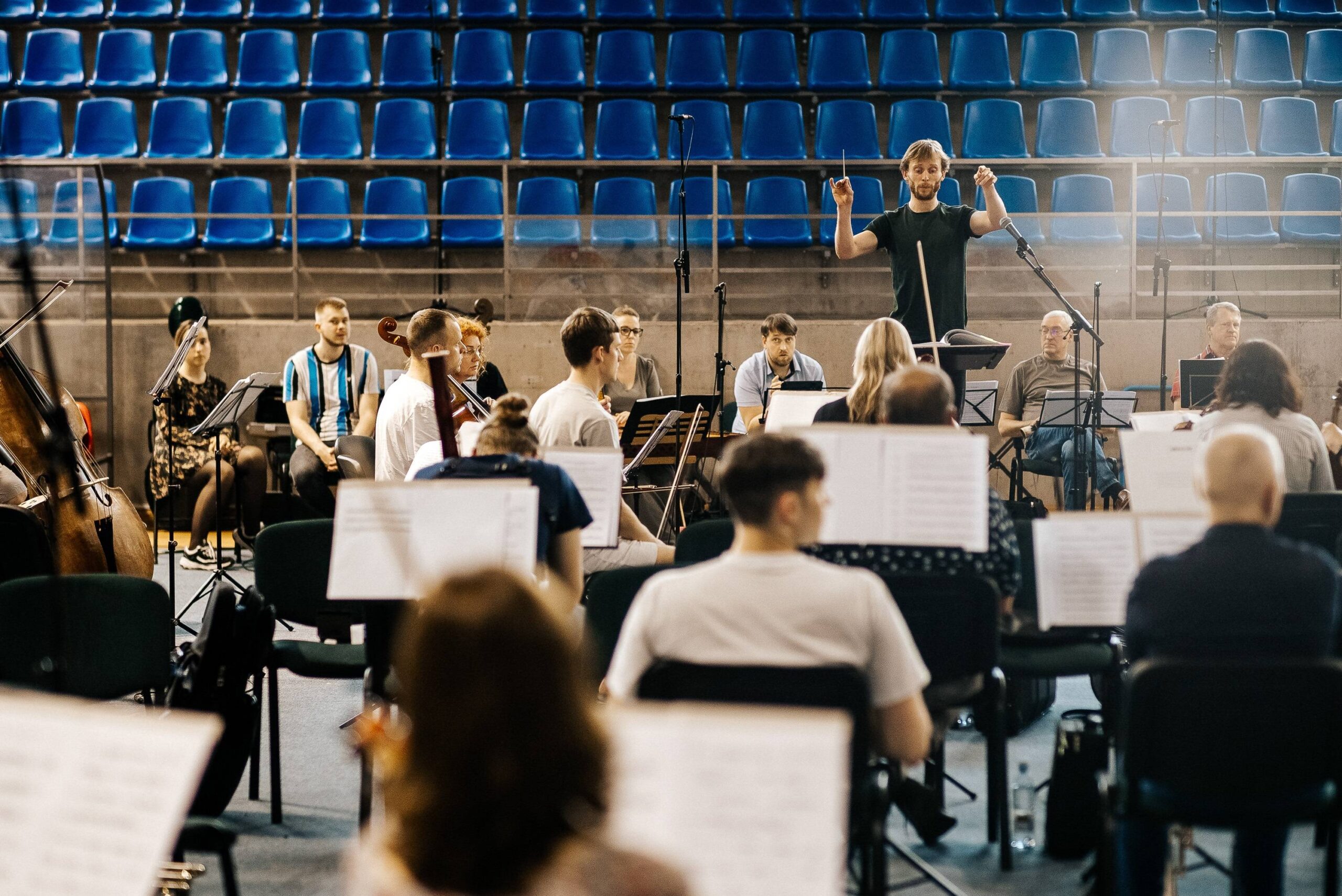
Kaunas Cantata
An extraordinary immersive musical experience, created especially for Kaunas and the people who love it. Composer Philip Miller and visual artist Jenny Kagan, together with Lithuanian music performers, will invite the audience to choose what to listen to and what to hear. The work was inspired by Kaunas residents’ personal testimonies, memories, as well as the rich and diverse world of sounds.
When: 30 September – 1 October 1, 7 p.m.
Where: Kaunas Žalgiris Arena
Book your tickets here.
Interactive exhibition Out of Darkness
Artist Jenny Kagan, daughter of Juozapas Kagan and Margarita Štromaitė from Kaunas, grew up in the United Kingdom, surrounded by stories of pre-war and wartime Lithuania. In the exhibition Out of Darkness, she brings the extraordinary story of her parents’ survival in Kaunas during the Holocaust to life. The exhibition’s setting, including images, music, video projections, and other elements, immerses the viewers in a narrative that is both personal and universal.
When: until 30 October
Where: Gimnazijos St. 4
Book your tickets here.
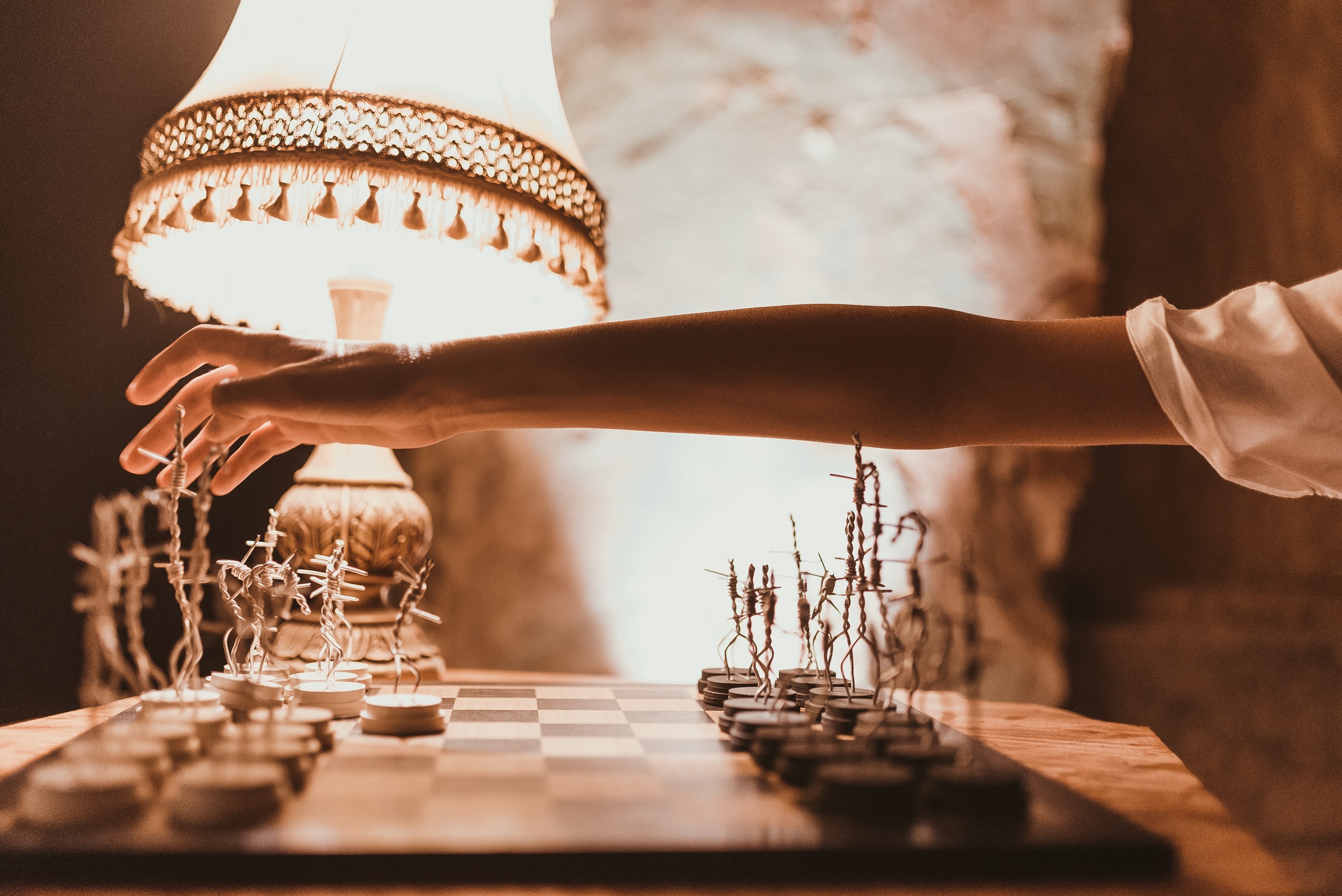
Conference Modernism for the Future. Interpretations
Modernism for the Future. Interpretations, a conference that has already become an annual tradition, will symbolically conclude the five-year programme. Curated by Vaidas Petrulis, the event is expected to foster debate and dialogue between a wide range of experts in different fields. Speakers from Lithuania and abroad will share best practices and insights on modernism as an inspiration for creativity and discuss cases of artistic communication of modernist architecture as well as their relevance in considering possible visions for the future of heritage.
When: 21–22 September
Where: Amphitheatre of Kaunas Žalgiris Arena and other locations
See here for the full programme.
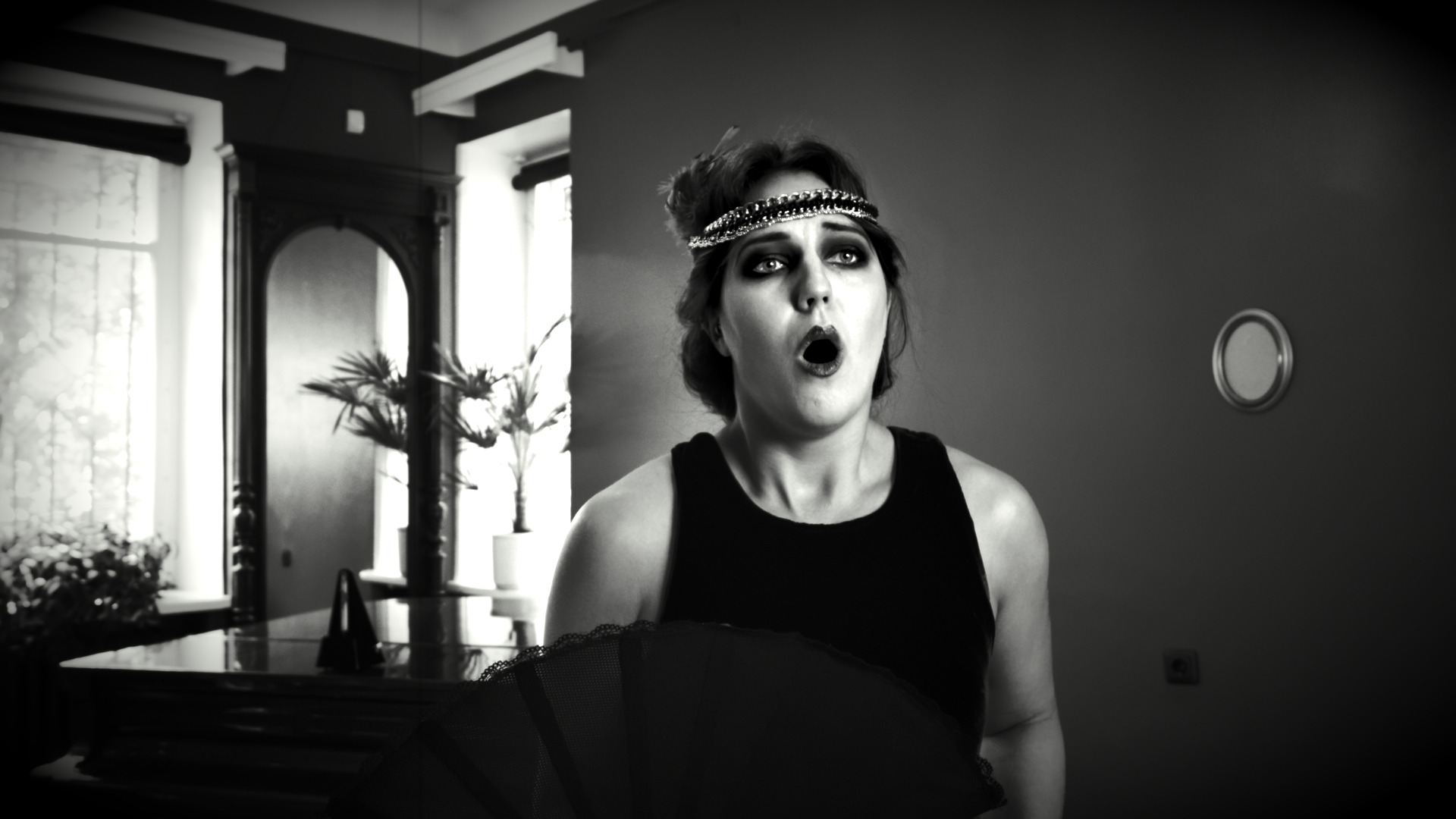
Premiere Klostės / Folds
Klostės / Folds is a 67-minute black and white silent film made by artist Aideen Barry and the residents of Kaunas. On 22–24 September, the film will be premiering in Kaunas at Romuva Cinema which will be opening its doors to visitors again after reconstruction. The film was inspired by Kaunas modernist architecture and the magical stories that lie within it. It was a unique two-year creative process that brought together over 600 local residents and professional artists.
When: 22–24 September
Where: Romuva Cinema
Cultural experiences in Kaunas district
In September, Kaunas district will once again become a centre of attraction. The project Contemporary Neighbourhoods will invite everyone to Rokai, Lapės, Linksmakalnis, and Kačerginė to join a number of colourful festivals organized by local communities. Cultural surprises also await in Zapyškis. The former dredger Nemuno7 will host the Agents exhibition, the fourth part of the Fluid Bodies exhibition series, and participating artists of the OSTRALE Biennial residency will present the results of their work in 3 marine containers situated on the banks of the Nemunas.
When, where: Rokai (03/09), Lapės (03/09), Linksmakalnis (10/09), Kačerginė (04/09), Agents exhibition (until 21/09), OSTRALE contemporary art exhibition (from 05/10)
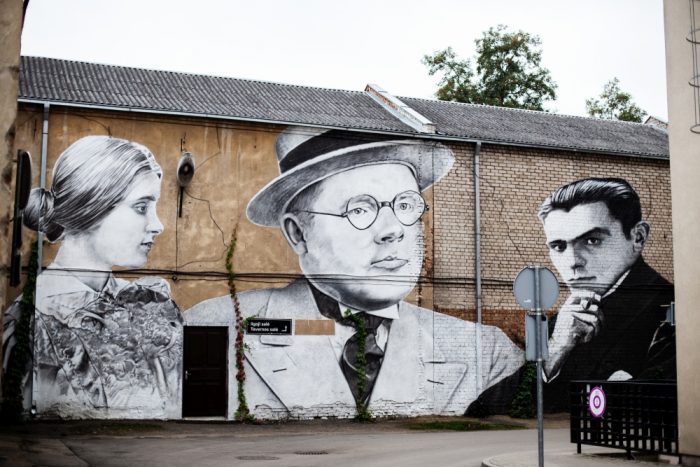
Magenta Landscape Design Festival
Which comes first – nature in the city or the city in nature? Magenta Landscape Design Festival will invite you to reflect on this question between 9–25 September. Residents of Kaunas and Kaunas district will have a chance to enjoy almost 20 new objects of design, tactical urbanism, and landscape design, and a rich festival programme.
When: 9–25 September
Where: Kaunas
Organizer: public institution Šeimos laikas
See here for more information.
Kaunas Architecture Festival East-East
The international project East-East for professionals and the general public is returning to the programme of the Kaunas Architecture Festival. It is the result of a long-term cooperation which has laid the foundations for a previously non-existent architectural exchange between Lithuania and Japan. The festival’s programme includes a forum, exhibitions, lectures by professionals, and a competition for architecture students.
When: 22 September – 22 October
Where: Kaunas Central Post Office, Žalgiris Arena amphitheatre
Visit www.kafe.lt and www.laskaunas.lt for more information.
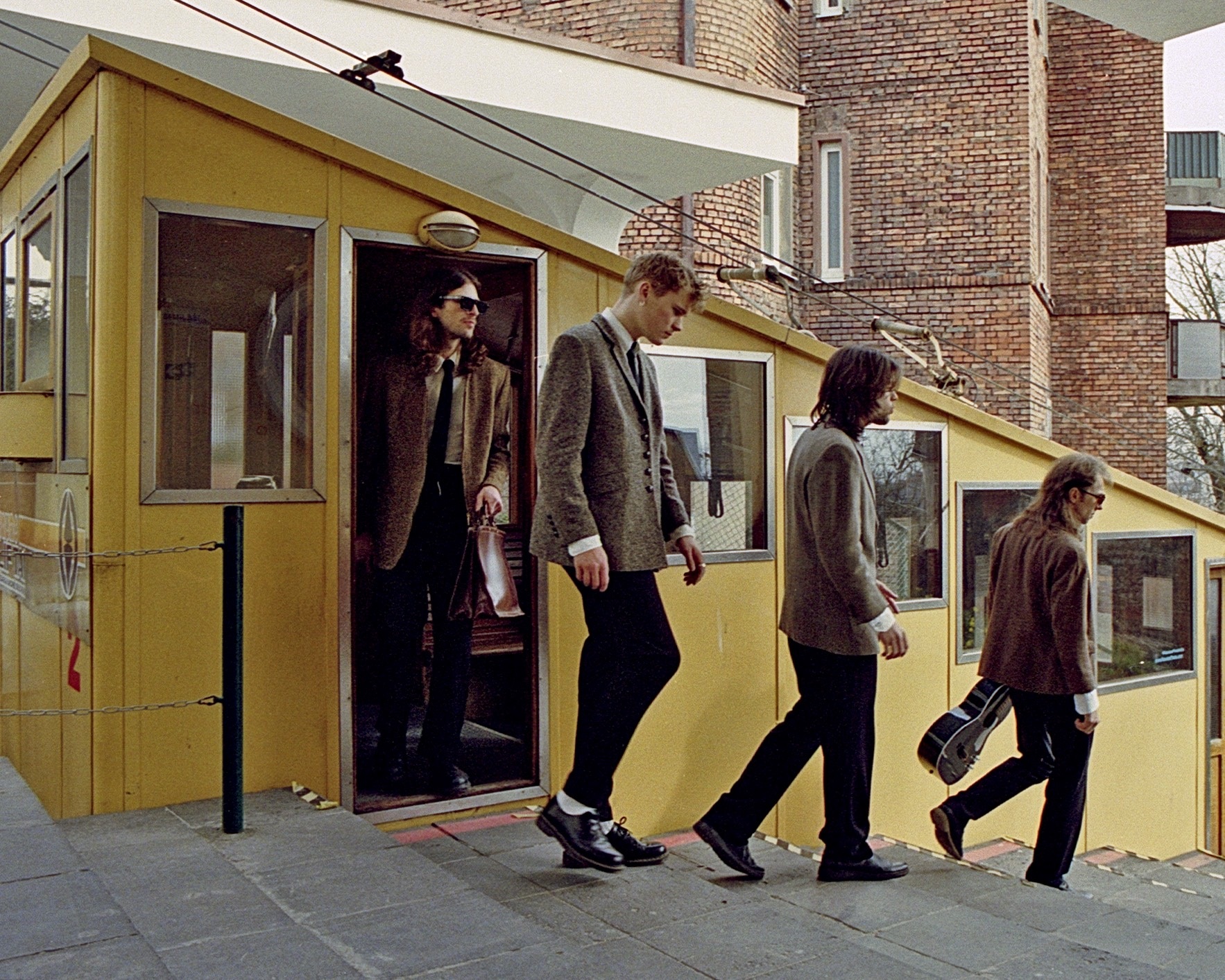
Kaunas 2022 Summer Stage
September marks the last month of Kaunas 2022 Summer Stage. The Town Hall Square has already hosted many representatives of the music, theatre, and even gaming scenes from Lithuania and abroad. This month, the Golden Parazyth, Gischt (AT), Rūta MUR, Tim Freitag (CH), ABUDU and many others will appear on stage.
When: until 17 September
Where: Kaunas Town Hall Square
See here for more information about free concerts and events.
Dorian by Robert Wilson
The play Dorian marks a historical event in the history of Kaunas National Drama Theatre and Kaunas culture. Robert Wilson, one of the world’s most renowned contemporary theatre directors and stage designers, in collaboration with Dhouse (Düsseldorf, DE), will tell the Kaunas audience the tale of a pleasure-seeking prince who cannot find himself in the time he lives in.
When: the play premieres on 1, 2 and 7 October.
Where: Laisvės Av. 71
Organizers: Kaunas National Drama theatre
Book your tickets here.
Summer is ending but culture continues
The much-loved project Culture in the Courtyards continues, this time visiting Aleksotas. The role of culture and artistic ideas in the debate on Europe’s future will be further reinforced by a session of the European Parliament of Culture. Yoko Ono’s installation Ex It will be entering its final days, and the CityTelling Festival will revive historical memory. The full Kaunas 2022 programme is available at www.kaunas2022.eu or on the mobile app.
The biggest Litvak Culture Forum in Lithuania will gather lovers of culture and history
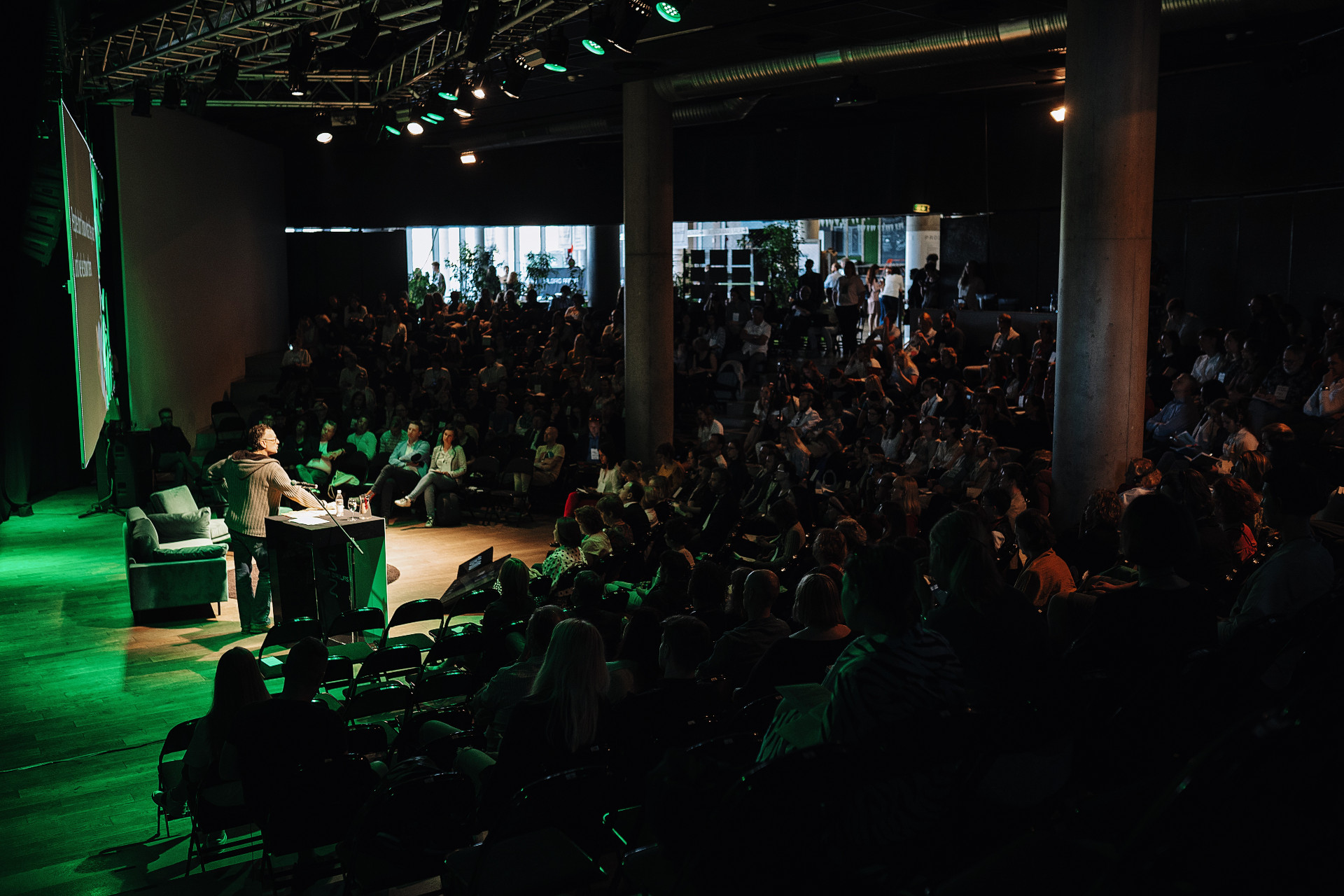
Culture enthusiasts are welcome in Kaunas on 29-30 September. The first Litvak Culture Forum will take place here. The Forum, initiated by the Kaunas 2022 programme “Memory Office”, will be followed by a varied programme of art events in different parts of the city.
Academics, historians, museum professionals, education experts, representatives of the art world, and community members - the Forum will bring together dozens of speakers from various fields and countries. Many of the guests will be visiting the land of their ancestors for the first time - these experiences are crucial in an event that raises the question of what it means to be a Litvak. Other themes of the Forum include culture and art as a key to history and the perpetuation of memory as a way to build a better future and promote openness and dialogue.
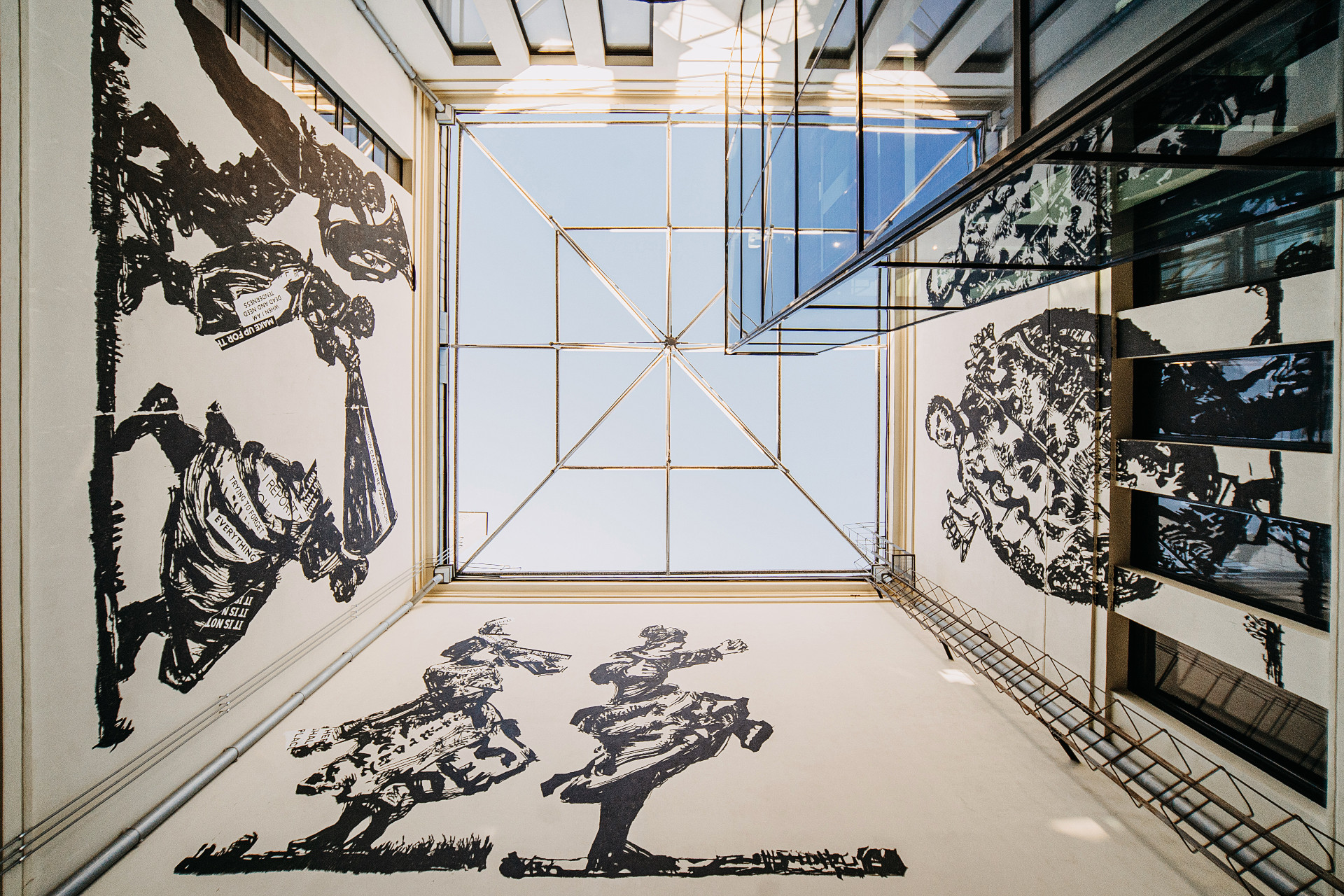
Returning to the Roots
According to Daiva Price, curator of the Kaunas 2022 “Memory Office” programme, the Litvak Culture Forum is a summary of the programme’s efforts and projects started in 2017. “For five years we have been trying to remind people that Kaunas has always been a multiethnic city and that the Jewish or Litvak part of its history is an important part of its identity. Through various art projects, we have talked about the complex pages of the city’s history, World War II and the tragedy of the Holocaust. So during the Forum, we will try to summarise what Litvak identity is and how art helps us to understand the history and remember,” intrigues the curator.
According to Ms Price, it is important that not only Lithuanian artists have been involved in this dialogue about the wounds of our history, but the project has also encouraged Litvak artists and scholars to return to the land of their ancestors. One of them is Prof. Peter Salovey, a descendant of the famous Soloveitchik family from Kaunas, a Litvak and President of Yale University: “The Forum is, therefore, a great opportunity to revisit our common past, to meet and reflect on the future, to discuss what kind of future we want for this city, and how (or if) art can help us to understand the history better and learn from its mistakes.”
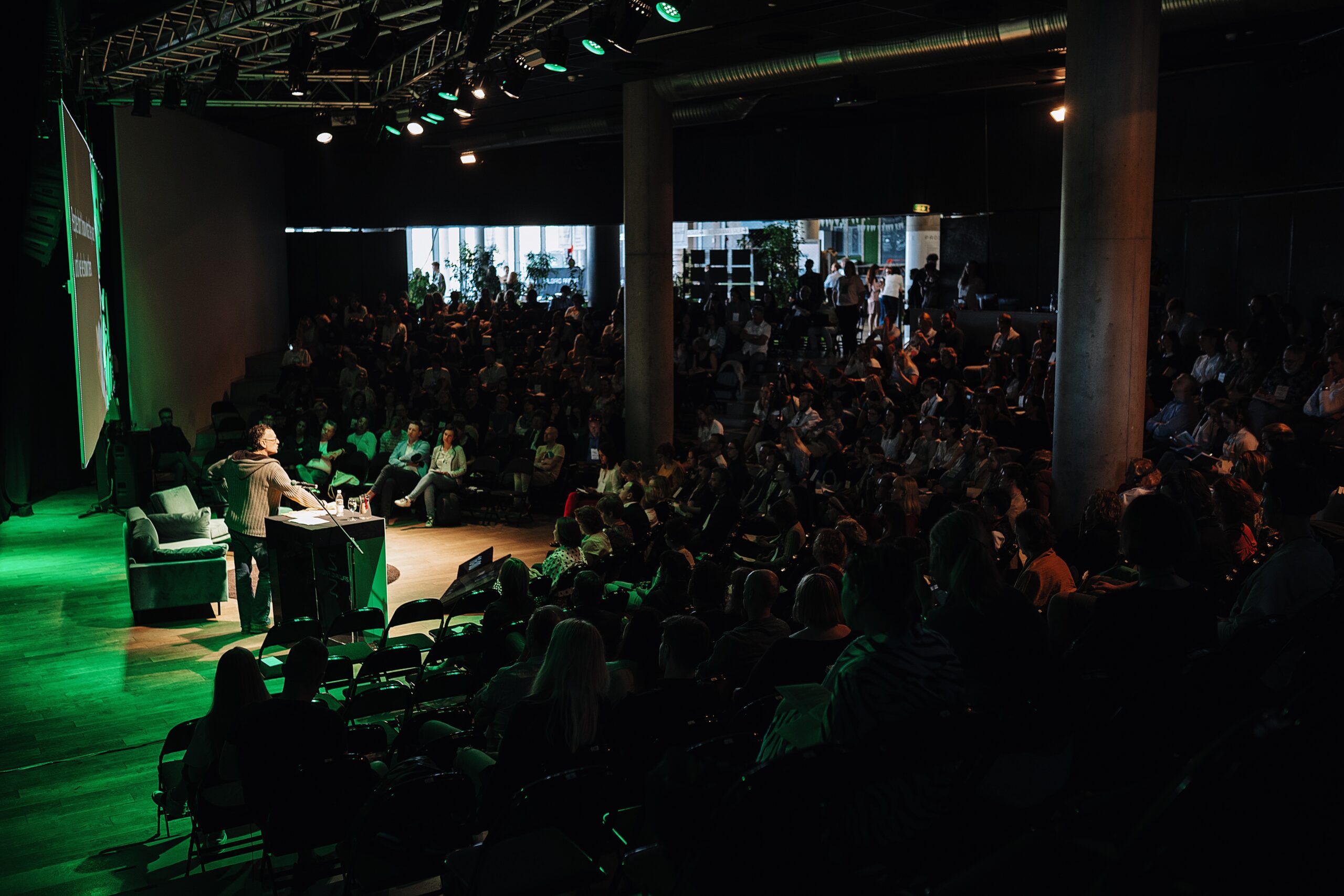
Artists and Academia
Lithuanian and international artists such as writer and art curator Paulina Pukytė, Lina Šlipavičiūtė-Černiauskienė (project “Walls That Remember”), Jyll Bradley (UK), who has brought back the mezuzahs to the streets of Kaunas, translator of Leah Goldberg’s book “A Flat for Rent” writer Daiva Čepauskaitė, artist Sigutė Chlebinskaitė, among many others.
Prof. Violeta Davoliūtė, a researcher of the politics of memory in East-Central Europe, will represent the academic community, as well as a large group of scholars from all over the world. Among them are Prof. Antony Polonsky, Professor Emeritus at Brandeis University, author of numerous monographs (PAR/UK), Prof. Peter Salovey, Professor of Social Psychology, President of Yale University, Honorary Doctor of the VMU (USA), Prof. Tsvia Walden, Psycholinguist (IL), and others.
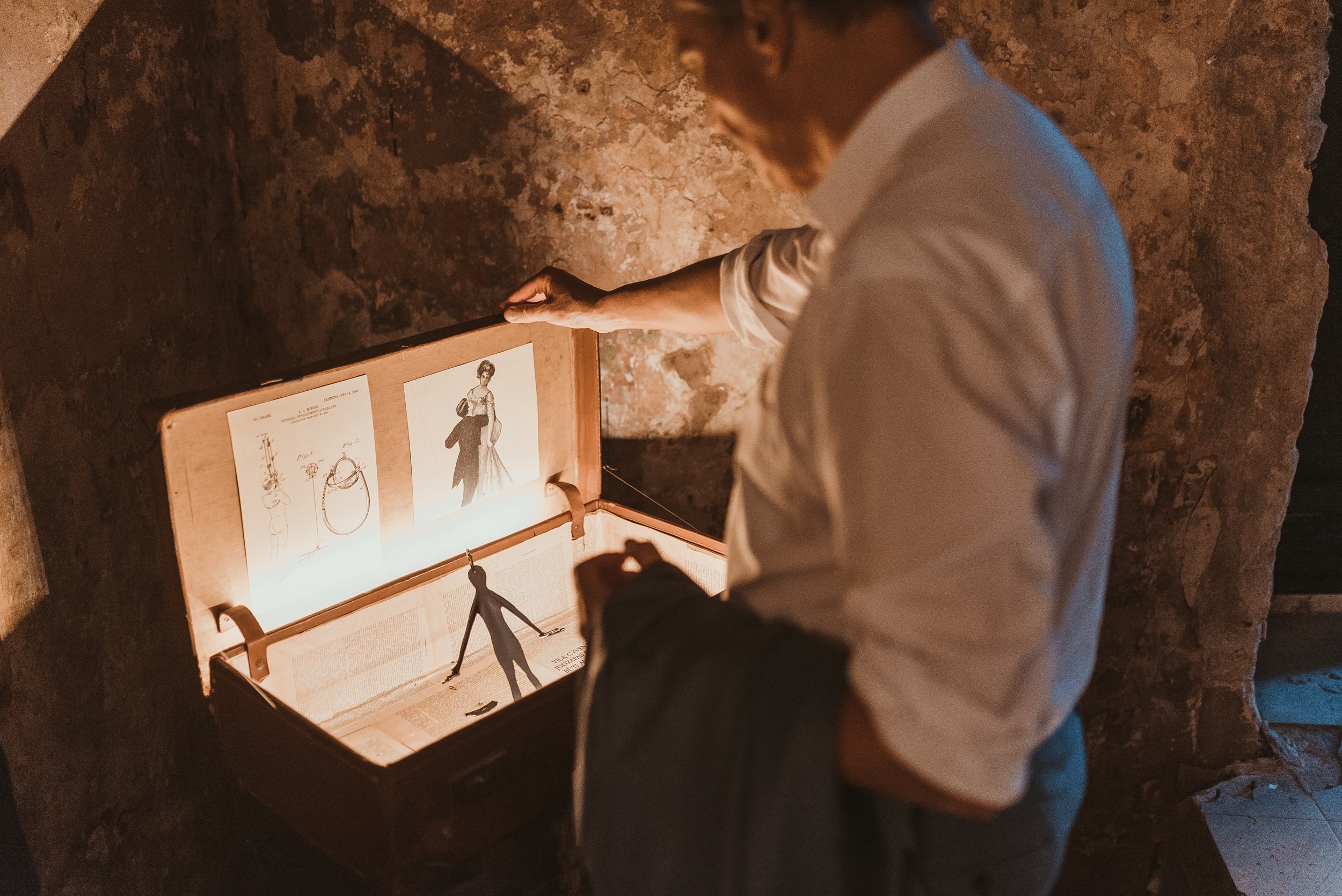
Rich Cultural Programme
During the days of the Forum, special musical projects will be presented to the participants and guests at Žalgirio Arena. On 29 September, a concert of Yiddish songs by Marija Krupoves, dedicated to the Jewish memory of the city and the special spirit of Kaunas is scheduled. On 30 September and 1 October, the focus will be on the premier of Kaunas Cantata by composer Philip Miller and artist Jenny Kagan. The Cantata tells the complex story of historical upheaval, the Holocaust, deportations and personal trauma, and the traces it has left in the lives of generations and individuals in the language of music, texts and images. The premiere will be performed by over 200 musicians, the Kaunas Symphony Orchestra, choirs and various ensembles.
During the Litvak Culture Forum, a number of unexpected artistic events will take place in Kaunas, helping to broaden the context of the discussions and to extend the conversations. n born in Israel, "Bringing back to Kaunas" will be presented in the central building of VMU. On 28 th of September the photography exhibition by Michael Shubitz, a Lithuanian born in Israel, "Bringing back to Kaunas" will be presented in the central building of VMU, while, the Emanuel Levinas Centre at LSMU will host a concert-narrative entitled “The Music Shell”, during which an international group of artists will perform original music inspired by Jewish folk songs, ceremonial music and professional music.
On the 29th of September, two musical events will be happening in the city: a performance by pianist Aleksandr Paley and clarinet master Karolis Kolakauskas and the concert "After Shagal“. The recently deceased composer Anatolijus Šenderovas said of this later work: “[It] is full of symbols - the clarinet recalls the former Jewish life in Europe, the percussion and the string quartet are like an allusion to the biblical world.” The work will be performed by the Chordos String Quartet, clarinettist Algirdas Žiūra and percussionist Arkadijus Gotesmanas.
The programme of events will also include exhibitions that are already in place and have been attracting a great deal of interest from the city’s inhabitants and visitors, such as William Kentridge’s “That Which we do not Remember” and Jenny Kagan’s “Out of Darkness”.
Participants will also be invited to visit Kaunas Fortress IX, where artists Bruce Clarke (FR) and Tebby W. T. Ramasike (NL) will present the visual art and contemporary dance work “Ecce Homo: Those who Stayed”.
The patron of the Lithuanian cultural forum is Prime Minister Ingrida Šimonytė. Patrons of honour - prof. Liudas Mažylis and Faina Kukliansky, chairman of the Lithuanian Jewish community. Partners - Vytautas Magnus University and the Lithuanian Jewish Community.
More information about the events is available here.
The first half of the European Capital of Culture ends: a record number of visitors and international media attention
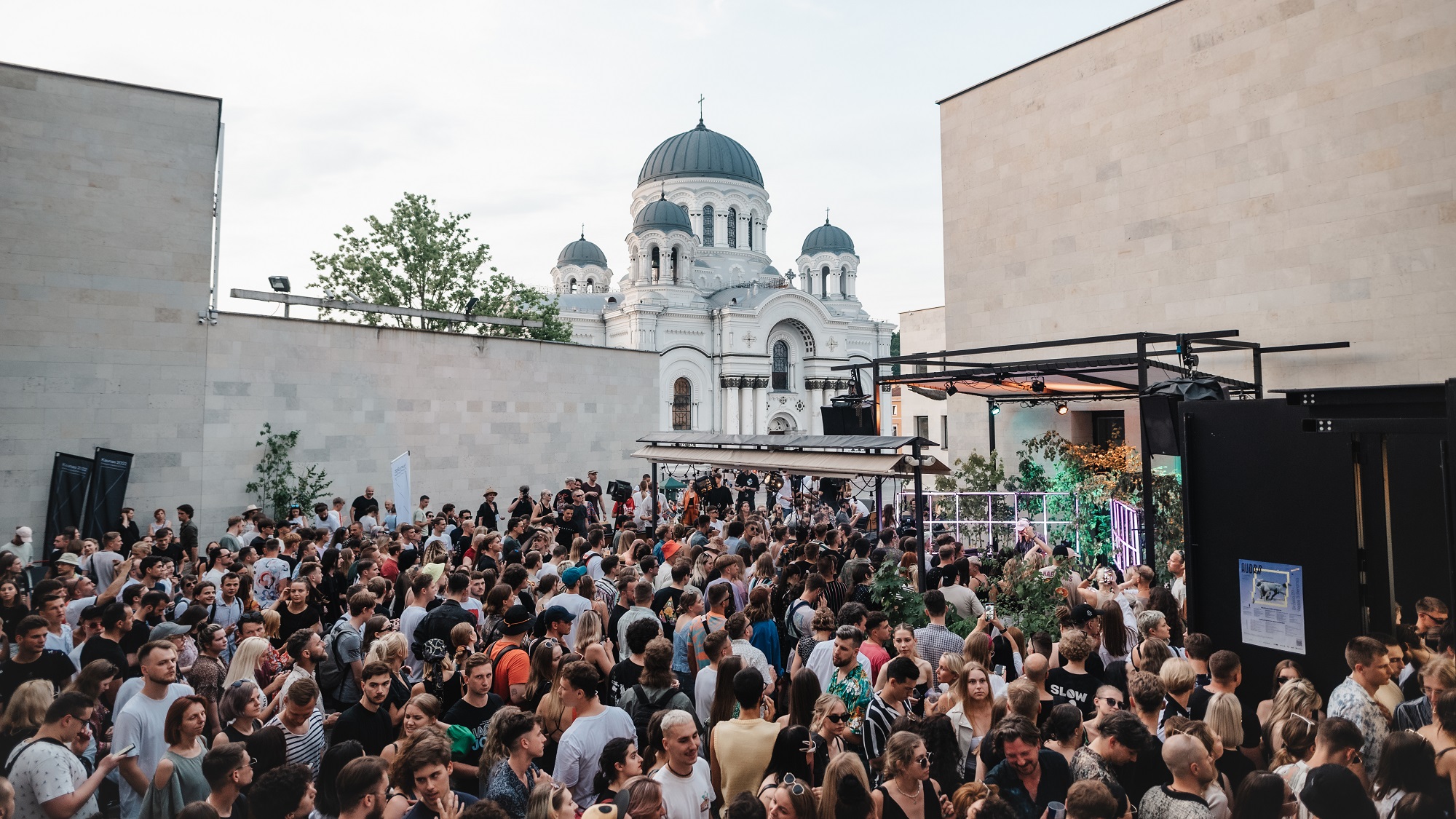
Kaunas is in the midst of the year as the European Capital of Culture, with over 1,000 planned events that will change the cultural face not only of the city but also of the whole country. From record-breaking numbers of visitors to increased media attention, the team of Kaunas 2022 reveals the results of the first half of the year.
“By August, more than 600 events – exhibitions, theatre plays, festivals and concerts – had already been organised in Kaunas and Kaunas district. We estimate that in the first half of the year, more than 800,000 people visited them and more than 6,000 professionals contributed to the programme. It is not just the numbers that are pleasing, but every day we also feel that people are engaged. From the very first day, we wanted it to be a community project that would involve in culture as many residents of the city, professionals, and the young generation as possible,” Virginija Vitkienė, Head of “Kaunas 2022”, says.

Record number of people at events
The most awaited and the most attended event of the “Kaunas 2022” programme was the visit of the Serbian performance artist Marina Abramović and the opening of her retrospective exhibition “Memory of Being”. The public lecture by Abramović was attended by 6,000 admirers of the artist and the exhibition was visited by over 25,000 visitors. Other exhibitions have been equally well attended, for example, more than 27,000 visitors attended the exhibition “That Which We Do Not Remember” by Kentridge, which runs until the end of the year.
The events of the Contemporary Trilogy of Kaunas Myth were also very popular. In January, over 150,000 people watched the cultural “Uprising” in Kaunas in front of the whole of Europe, and in May, “The Confluence” weekend attracted over 300,000 cultural enthusiasts.
“It is not only the involvement of Kaunas residents that is encouraging, but also the fact that the city is becoming increasingly more interesting to the international audience. By July, around 20,000 tourists had visited Kaunas. I think that the well-known names, the events of Capital of Culture have helped to reach the people in countries of Europe. Visitors from abroad are interested in Kaunas modernism, exhibitions, and the newly opened CulturEUkraine Centre for Ukrainian creators. We welcome many Germans, Italians and people from neighbouring countries – Poland, Latvia and Estonia. It is great to see that increasingly more people are coming to Kaunas not for half a day, but for a whole weekend or a few days – there are increasingly more activities to be found here,” Mindaugas Reinikis, Head of the Communication and Marketing Department, says.
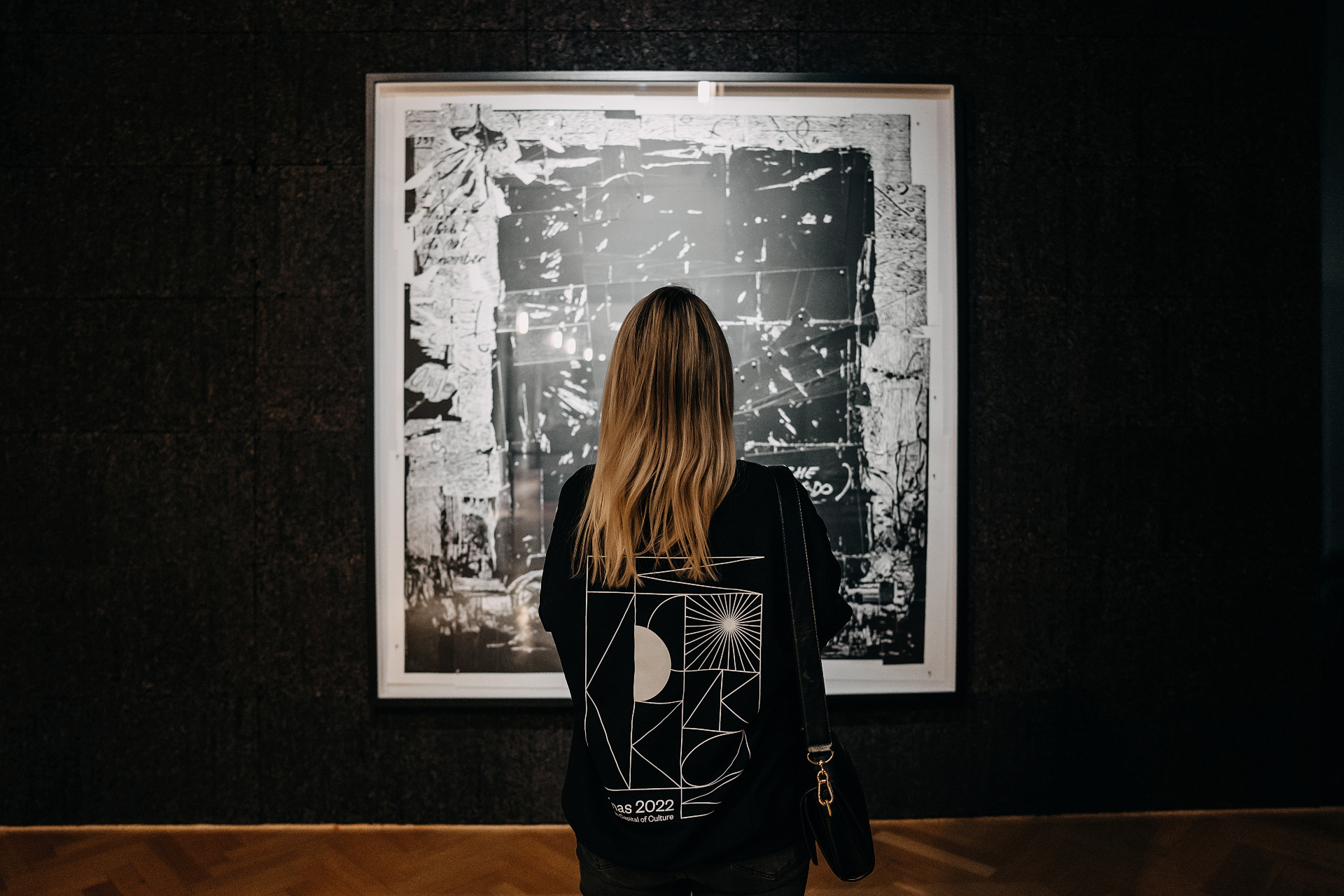
Increased media attention
According to Mr Reinikis, it was the subject of the European Capital of Culture that was most prominent in the foreign media. “During these six months, Kaunas was visited by 144 journalists from 19 countries. Articles, interviews and reports were produced, reaching a large foreign audience.”
“Kaunas 2022” was mentioned in articles in as many as 62 countries, including not only European countries, but also the USA, India, the United Arab Emirates, Canada, South Africa and Singapore. Readers of media portals such as the BBC, CNN, TIME, The Guardian, The Telegraph, Deutsche Welle and the Financial Times have learned about Kaunas.
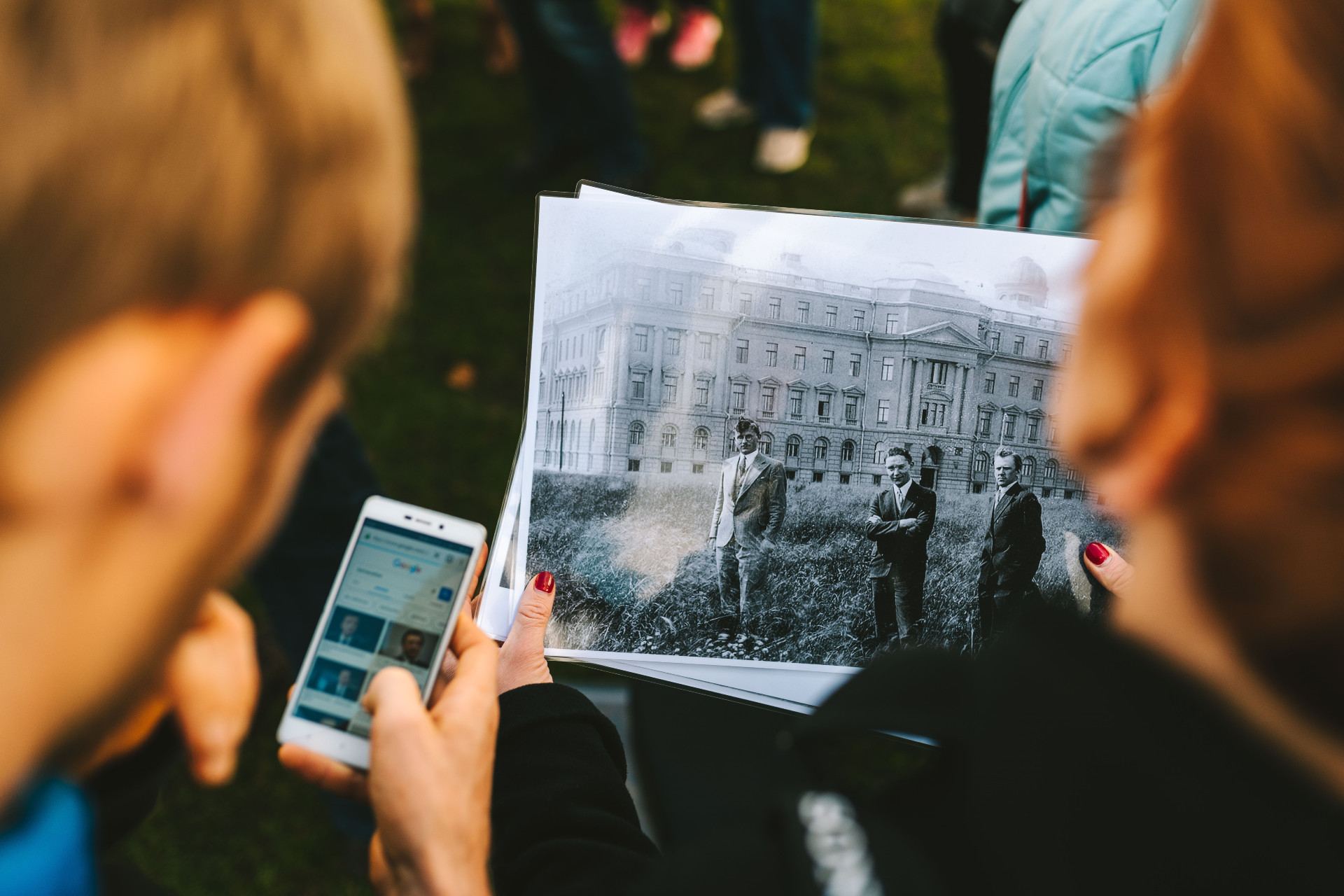
Even more culture as autumn approaches
According to the Director of “Kaunas 2022” Vitkienė, the impressive results of the first half of the year are not yet final. “These figures only reflect statistics for the months from January to June. In the summer, we invited visitors to several events: the contemporary city festival “Audra”, the performing arts festival “ConTempo”, and the Citytelling festival. Finally, the autumn will be full of events. Therefore, we are looking forward to sharing even better results at the beginning of 2023.”
The upcoming autumn will indeed bring even more cultural experiences to Kaunas. The following events that started in the summer will continue until the end of November: the Festival of Stories that will continue to revive the multi-ethnic memory of Kaunas and its surroundings, Jenny Kagan’s exhibition “Out of the Darkness”, which will present the history of the Kaunas Ghetto, the exhibition “The Learning Garden of Freedom”, which will be dedicated to the works of Yoko Ono, the premiere of the film “Folds”, a film that has travelled around the world, which is devoted to the modernism of Kaunas, and the Fluxus Festival, which is loved by the residents of the city.
The full programme of “Kaunas 2022” is available at www.kaunas2022.eu or on the mobile app.
Kaunas 2022 Summer Stage Not to be Stopped by Calendar: Concerts Scheduled Through September
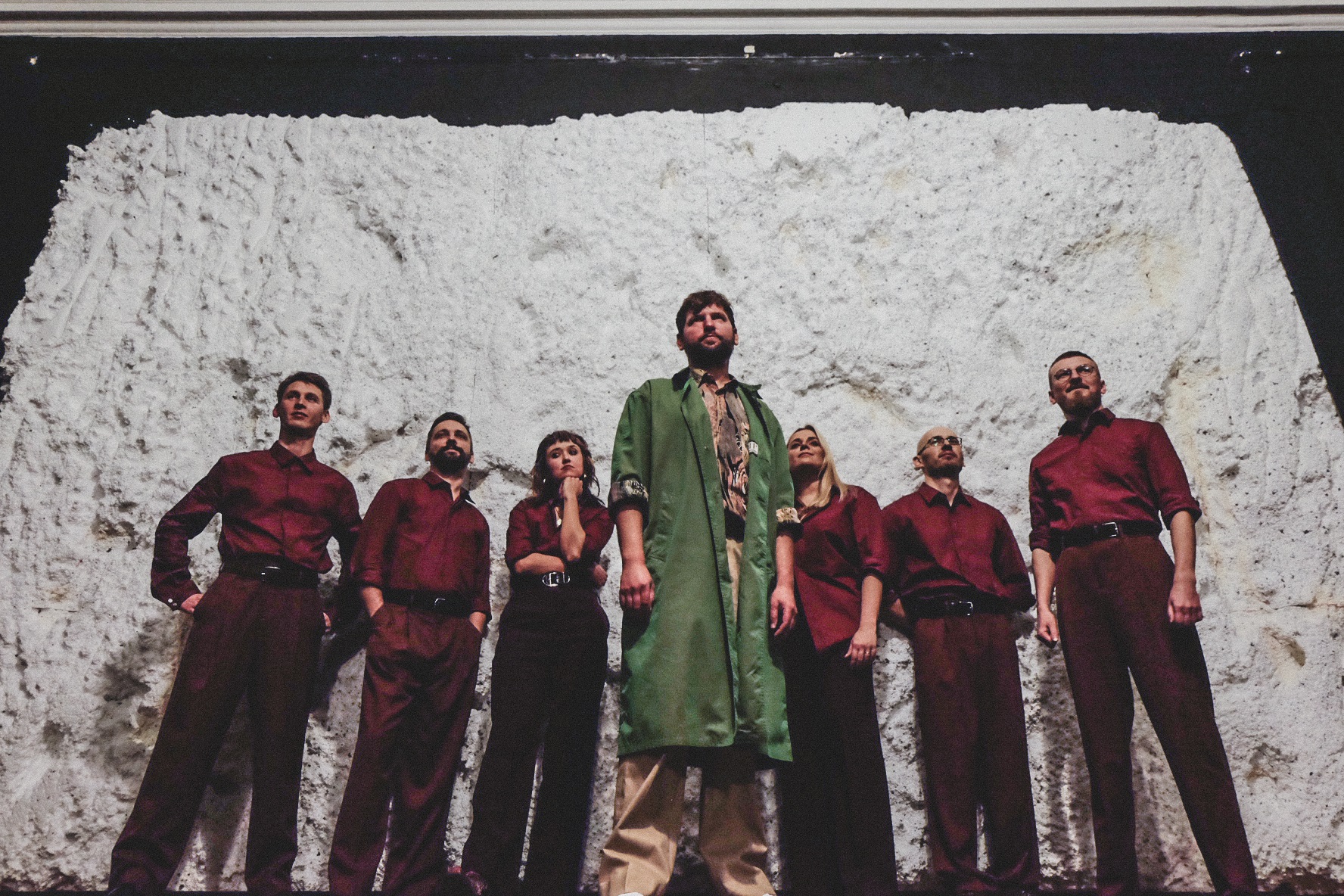
The rhythm of the contemporary capital of Kaunas does not succumb to the traditional limits of seasons. Launched in May, the Kaunas 2022 Summer Stage, located in Town Hall Square, continues its marathon of concerts with ten evenings planned for September. The repertoire includes performances by the Lithuanian ambassadors of the European Capital of Culture and their international counterparts and concerts by two unique orchestras.
Highlights of the Summer Festivals
After memorable festival tours, the Kaunas Town Hall Square will be home to many of the brightest stars of the Lithuanian alternative music scene in September. On 2 September, Flash Voyage will be hitting their home turf. After the band's spectacular performance at the Audra festival in July, the Kaunas-based psychedelic rockers promise to tell more than one guitar-based fairy tale heard in the woods or dreamt up by the lake.
You won't have to wait long for the next chance to sing along - on 3 September, Golden Parazyth will climb on the Kaunas 2022 Summer Stage and invite the crowd to search for the light. The evening's programme will include the most memorable sunsets, beautiful tree shades, fragrant plants and the wildest animal noises.
Another European Capital of Culture ambassador, who paints even the greyest skies pink during her performances, is also on her way to Kaunas. Rūta MUR, the Klaipėda-based electronic music artist, will throw a concert in Town Hall Square on 16 September. That evening, GISCHT, or Ursula Winterauer from Vienna, will share the stage with Rūta. In her creations, the Austrian artist explores the grey areas between ambient music and slow techno.
The last highlight of the Kaunas 2022 summer stage on 17 September will be sparked by Abudu, whose latest album 'Gaisras (Fire)' is still smouldering in the players of the fans of alternative sound. 'Between lyricism and rebellion' is not only the motto of Abudu but also that of the Swiss band Tim Freitag, who will be closing the open-air concert venue together with Lithuanians. This band is sure to make you cry. The only question is: from joy or sadness?
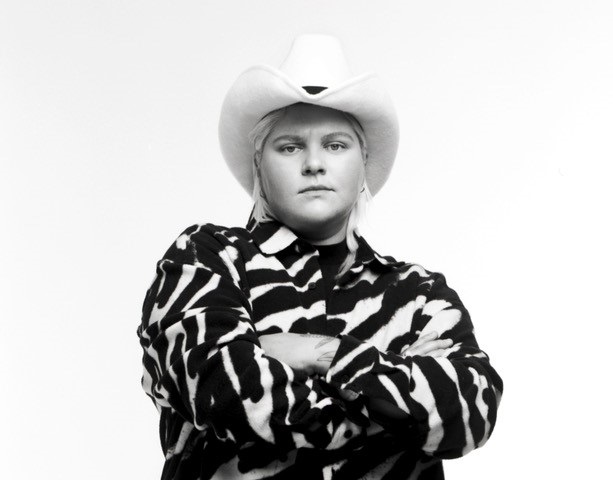
Two Unique Orchestras
Orchestra concerts have already become a tradition on the Kaunas 2022 Summer Stage. The last month of the extended season has two special guests. On the afternoon of 4 September, the refreshing sounds of strings and brass instruments will fill the Old Town of Kaunas, as the Lithuanian Joint Klezmer Orchestra will deliver a special programme. The Rakija Klezmer Orkestar, percussionist Arkadijus Gotesmanas and violinist Boris Kirzneris will come together, especially for this year's CityTelling festival. The orchestra will invite you to bring back the tradition of klezmer, or Jewish folk, which almost disappeared after the Second World War.
The following exceptional guests on the Kaunas 2022 summer stage will arrive on 15 September from a Kaunas' partner city in Poland. The Toruń Improvisers Orchestra couldn't have chosen a better venue for their programme dedicated to the poet Adam Mickiewicz. After all, it was at the Jesuit Gymnasium in Town Hall Square where he once taught! The essence of the orchestra's project 'Local Landscape: Ballads and Romances' is to show the universality and cosmos of meanings of Mickiewicz's 'Ballads and Romances' in relation to contemporary times, culture and contemporary art. This year, the book turns 200 and 2022 in Poland is the Year of Polish Romanticism.

Costume Workshop and Rehearsal Before the Fluxus Festival
One of the most anticipated events at the beginning of Autumn in Kaunas, when Parodos Hill will be closed to cars after dark and opened to the motley crowd of dressers, is the Fluxus Festival. On 10 September, this event will take place for the fifth time, so every Kaunas resident living in Fluxus's spirit must dress accordingly. Those who are yet to create their own Fluxus alter ego are welcome on 9 September from 5 pm at the Town Hall Square. ‘You will find the necessary tools in the workshop, but if you want to bring glitter, ribbons, wigs, boxes and other tools that are sleeping in the cupboards, you are welcome to do so and turn them into the craziest costume,' the organisers say.
Tomorrow’s Music in the Heart of Lithuania
What’s Next In Music, a showcase festival and conference traditionally held in the capital in September, will also visit Kaunas this year. On 10 September, the bright stars of tomorrow will take to the stage of the European Capital of Culture.
The programme will feature the Kaunas-based French singer Clara Giambino, the Vilnius post-punk band Local Blood, the Italy-based Albanian electronic music duo Shkodra Elektronike and the Estonian Andres Kõpper who will introduce himself as NOËP.
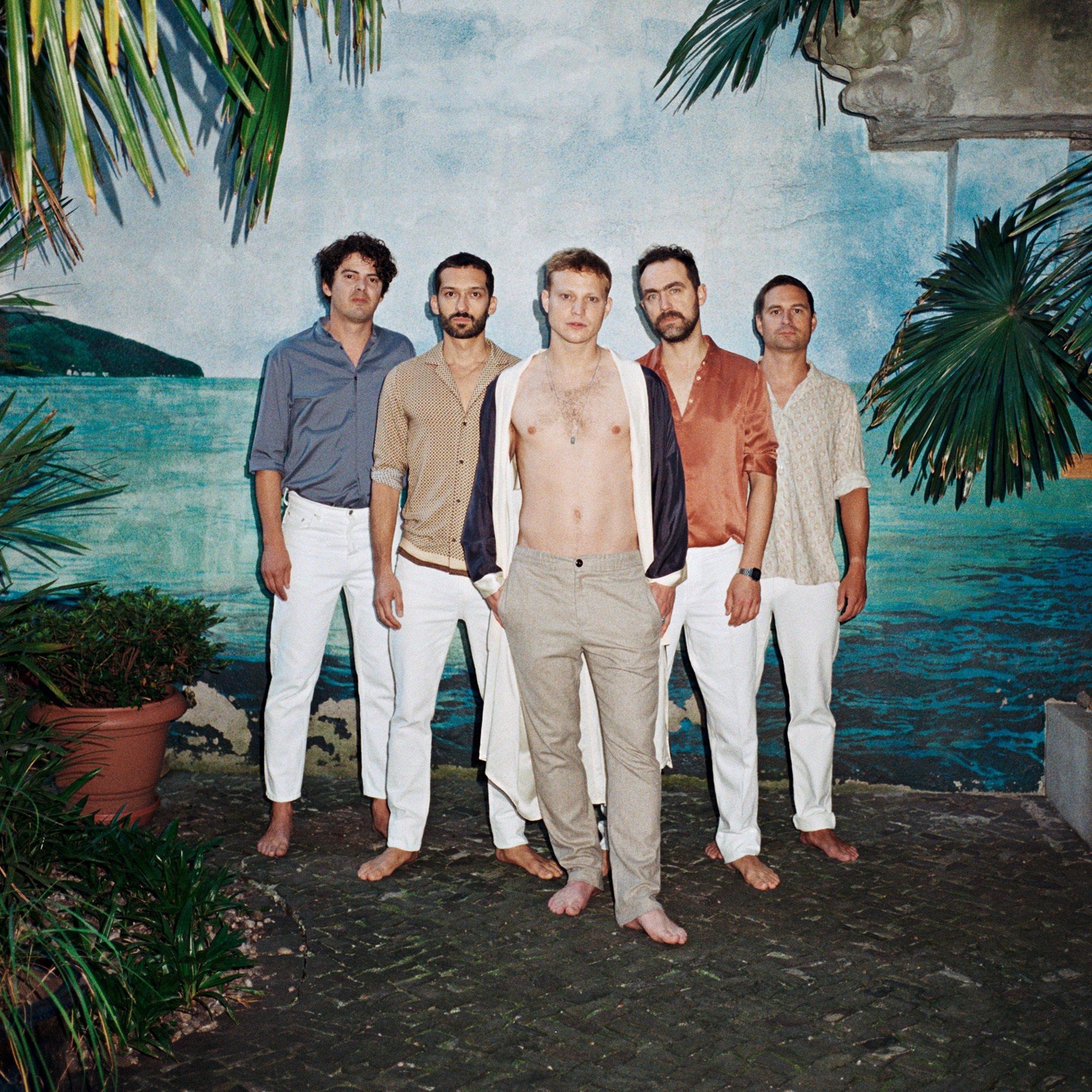
The European Capital of Culture programme in Kaunas and the Kaunas region continues throughout the year, with hundreds of traditional and debut events planned for 2022, including exhibitions, festivals, performances and other activities created by local and international artists and Kaunas communities. For the complete Kaunas 2022 programme, please visit www.kaunas2022.eu or the mobile app.
Karl-Erik Norrman: it’s very important to defend European values today
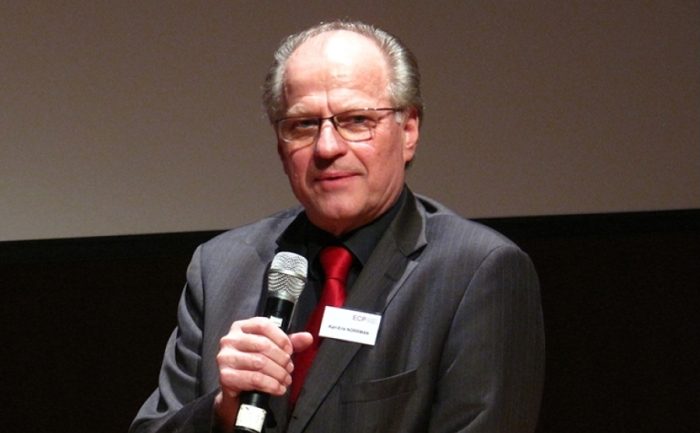
“This year, it’s very important to defend European values: in times of war and opposition against democracy, human rights, freedom of movement etc. That will be one of the main reasons of our meeting in Kaunas. We also think it’s significant that we’re meeting in a university – here we will discuss the promotion of the role of universities in European cultural cooperation”, says ambassador Karl Erik Norrman, founder and Secretary General of the European Cultural Parliament (ECP). On 8–11 September, he will participate in the ECP’s session in Lithuania – at Vytautas Magnus University and the premises of Kaunas the European Capital of Culture 2022.
During the session of the European Cultural Parliament, Kaunas will be visited by ECP members, which include independent artists, writers, musicians, historians, philosophers, designers and representatives of other cultural fields from Great Britain, Sweden, Greece, Ireland, the Netherlands and other European countries. During the session, discussions, creative workshops and exhibition openings will be held. At the events, which will open to the public, topics related to Europe and its culture will be discussed: the role of universities in the European capitals of culture, cultural diplomacy, the role of culture in the context of war and other matters. Understandably, Ukraine will also be remembered: not just in discussions but in exhibitions as well. At VMU Great Hall, an exhibition by Ukrainian photographer Oleksandr Zakletsky will be exhibited.
“You can say that this year Ukraine is becoming a symbol of cultural diplomacy. In these very difficult times, Ukraine is doing a great job. We hear and see a lot of Ukrainian artists promoting their case as Europeans, as democrats etc. President Zelenskyy himself is a great cultural diplomat, he’s speaking to the whole world about European values”, – explains Karl-Erik Norrman, who is not only one of the founders of the ECP but also works as a lecturer of cultural diplomacy at the Institute of Cultural Diplomacy in Berlin. According to him, the importance of cultural diplomacy is growing every year.
The Secretary General of the ECP also has many compliments to Lithuania and Kaunas, which is the European Capital of Culture this year and is holding various cultural events. “It is a very good program, and you’re doing it in a very tough time, with a lot of threats and pressure from your big neighbour. I think the Lithuanian approach is really to be praised. Our slogan is “to put culture first”, and we hope that Lithuania will continue to put culture first”, Karl-Erik Norrman says, expressing admiration of the program of Kaunas the European Capital of Culture.
He is also glad that in October, the VMU Agriculture Academy in Lithuania will host an international conference organised by the University Network of the European Capitals of Culture (UNeECC). This network aims to strengthen the role of universities in the events of European Capitals of Culture.
“This cooperation is very important: it will certainly inspire other universities to more actively participate in the cultural capitals. I think VMU is better than European average in this regard. Generally, I think it’s very important for universities to promote humanities and arts in their syllabus so that their place would not be taken by the more “concrete” sciences. I’d encourage VMU to take a strong role in promoting culture and cultural cooperation”, says the ECP Secretary General.
The European Cultural Parliament was founded in 2001, in the premises of the Council of Europe in Strasbourg, in order to ensure that independent artists would be heard in order to balance the growing influence of technocracy. “Ethical and aesthetic values must be the essence of a new European Society. We also say that culture is the core of society and creativity is the source of human existence. ECP aims to amplify the voices of independent artists and to intensify the dialogue between artists and other creative individuals. So we’ve created a forum at the ECP for continuing dialogue year after year, for 28 years. We might say that we give globalisation a kind of human dimension through this forum”, claims Karl-Erik Norrman.
In total, ECP has 160 members from 43 European countries. The parliament organises various international projects, e.g. between musicians, philosophers and visual artists from Italy, Austria, Denmark and other countries. ECP has also contributed to political changes at the European level.
“An ECP research group looked at the economic role of culture in Europe. We came to the conclusion that the economic role of the creative sector had been underestimated before. We presented this report to the President of the European Commission and, as a result, the following year the EU started showing in its statistics that the cultural and creative sector represents some 3 percent of the total European GDP and almost 4 percent of the labour force. The people in the culture sector are working on a lower income level than the average but they are very important”, emphasises the Secretary General of the ECP, noting that the parliament contributed to changes in the European institutions’ agenda and promoting cooperation of European artists.
The European Cultural Parliament will hold its Kaunas session on 8–11 September at Vytautas Magnus University (VMU) and the premises of Kaunas the European Capital of Culture 2022. During the session, which is open to all representatives of culture and members of the public, various topics related to Europe and its culture will be discussed, including, but not limited to, the role of universities in the European capitals of culture and the culture of Europe in general as well as the particularly topical issues of cultural diplomacy and the role of culture in the context of war.
The founders of the ECP include Finland’s former Minister of Foreign Affairs Pär Stenbäck, former Swedish diplomat, opera soloist, professor of international relations Karl-Erik Norrman, author of The Illustrated History of Europe Frederique Delouche and others. Senators of the parliament: Benjamin Bradshaw – former British Minister of Culture, Erna Hennicot-Schoepges – former Minister of Culture of Luxemburg, Memli Krasniqi – former Minister of Culture of Kosovo, Ivaylo Znepolski – former Minister of Culture of Bulgaria and others. Past members of the ECP included journalist Anna Politkovskaya and philosopher, culture politician Leonidas Donskis, who have sadly passed away. This year the ECP is joined by the Dean of VMU Faculty of Arts, Professor Jurgita Staniškytė, lecturer of VMU Music Academy, pianist Rimantas Vingras and head of Kaunas 2022 Virginija Vitkienė.
Participants of ECP Kaunas session must register online (HERE) before 6 September.
The event will be held in English.
Website of the European Cultural Parliament
The ECP Kaunas session is part of the program of Kaunas the European Capital of Culture 2022.
About Karl-Erik Norrman
Ambassador Karl-Erik Norrman is founder (2002) and Secretary General of the European Cultural Parliament (ECP), the only Pan-European forum for cultural personalities of all sectors of Arts. The ECP has 160 members from 43 European countries.
As a Swedish diplomat for 30 years he served i. a. in Moscow, Beijing, Geneva and Rome, dealing mainly with foreign policy, trade negotiations, cultural affairs, development cooperation, humanitarian affairs and the United Nations. As Ambassador since 1989 he was posted in Spain and Swedish Commissioner General at EXPO 92 in Seville. In 1994, Karl-Erik Norrman was appointed the head of the Cultural Department of Sweden’s Ministry for Foreign Affairs. From 1995 he was Executive Member of the Commission for Sweden Promotion Abroad at the Foreign Ministry. Norrman has also been an opera soloist (tenor) and is the author of more than 30 books about democracy, world population matters, Germany, China, India, UN, theatre, opera, design, food and other topics. He participates in the public debate in Swedish, German, British, Scandinavian and other international media and conferences. Since 2010, he has been guest lecturer of cultural diplomacy and European affairs at the Institute for Cultural Diplomacy, ICD, in Berlin. He is member of several International Boards, e.g. Place Branding and Public Diplomacy, London, Institute of Cultural Diplomacy, Berlin, Vizar Architectural Competition, Sofia, Music Mind Trust, Sussex, Harald Edelstam Human Rights Foundation, Stockholm, Fondazione Love Difference, Biella and Population Matters, London.
A long-awaited event in Lithuania: the exhibition The Learning Garden of Freedom by the world-renowned artist Yoko Ono opens in autumn
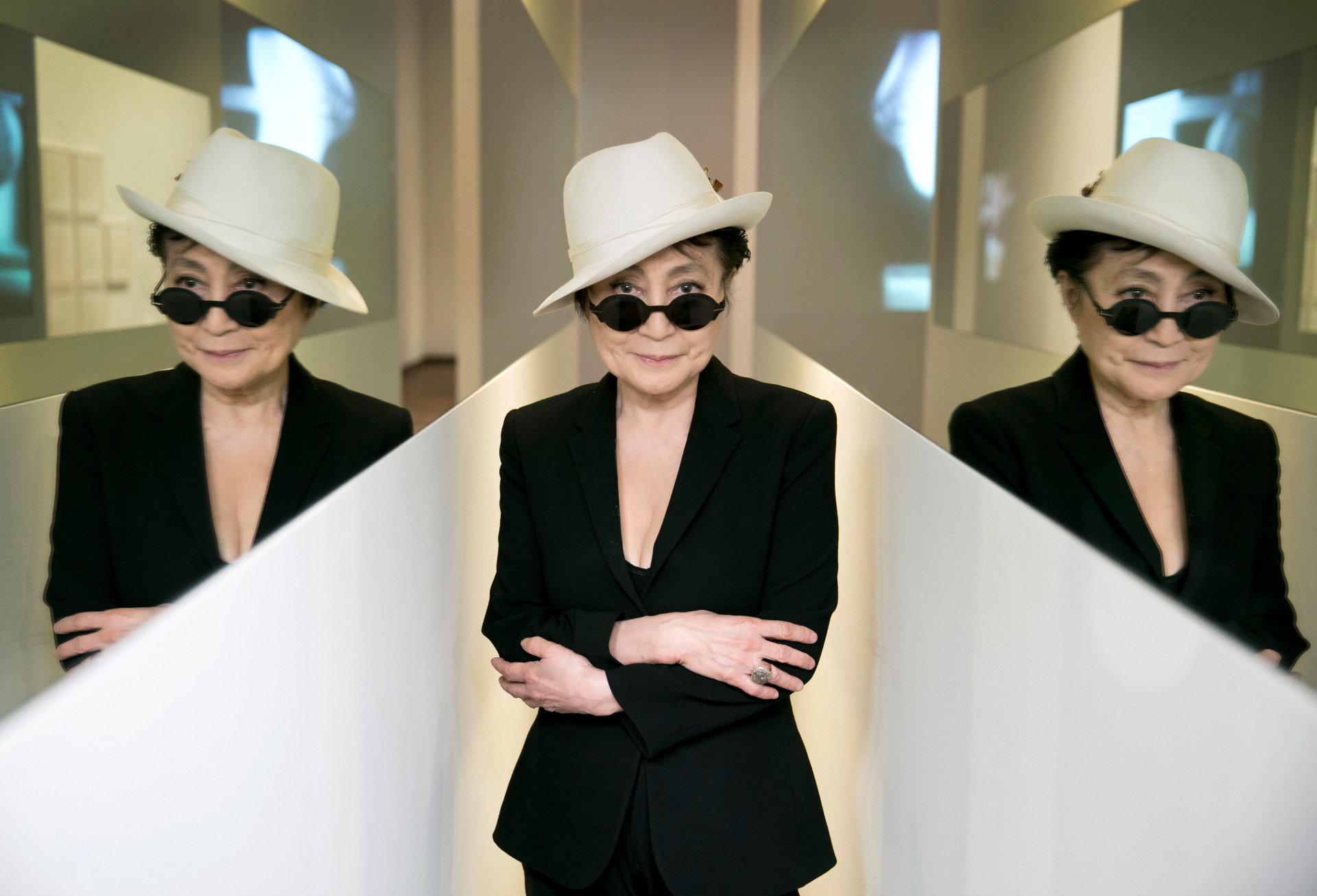
On 10 September this year, the exhibition The Learning Garden of Freedom by the world- renowned artist Yoko Ono will open at Kaunas Picture Gallery. The show will feature conceptual artworks, installations, objects, experimental films, performances, sound and text works. While waiting for the exhibition, Kaunas residents and guests are also invited to visit Yoko Ono’s installation Ex It currently on display at the Kaunas branch of the Bank of Lithuania. The installation works as the introductory part of the retrospective exhibition and will be on display until 11 September.
Yoko Ono (b. 1933, Tokyo) began her career in the 1950s. She worked closely with George Mačiūnas, the founder of the Fluxus movement, and her first solo exhibition (featuring works from the Instruction Paintings series) was held in 1961 at New York’s AG Gallery, also founded by Mačiūnas and Almus Salcius. In addition to her innovative paintings and performances, the artist later began to create objects, films and spatial installations, to bring other artists together in collaborative actions, and to invite the audience to actively engage in artistic processes. In her performances and other works, Yoko Ono raises issues closely related to the feminist movement, such as the female body and women’s empowerment in society. The artist’s name is also often associated with the pacifist movement, which remains more than relevant to this day.
One of the central components of Yoko Ono’s work are ideas. They can be serious or playful, utopian or poetic, expressed in words or actions, realised as objects and installations or simply in the imagination of the audience. Her work is highly political and social, not losing its relevance with the flow of time, encouraging the viewer to critically assess the world around them and, by using the language of art, to actively express one’s position on important socio-political issues. The Learning Garden of Freedom is an invitation to get to know Yoko Ono’s work and to reflect on the seriousness and playfulness of life as well as the power of imagination.
The exhibition is organised by the Contemporary Art Centre (Vilnius, Lithuania) in collaboration with the Serralves Museum of Contemporary Art (Porto, Portugal) and Yoko Ono’s studio Studio One (New York, US), and curated by the artist’s long-time friend and curator of Fluxus exhibitions, Jon Hendricks. It is a continuation of the exhibition held at the Serralves Museum in 2020, specially adapted for Kaunas, George Mačiūnas’ hometown. The exhibition is organised as part of the project Kaunas – European Capital of Culture 2022 and will run until 4 December this year.
Japanese music concert. Tsugaru shamisen & taiko
This year marks the 100th anniversary of friendship between Japan and Lithuania. To celebrate this occasion, we are happy to invite you to a Japanese music concert, which will take place on September 2, 18:00 at Business Leaders Center BLC, lobby of the Building D (K.Donelaičio g. 62).
The concert will be provided by Hibiki Ichikawa (Japan), a traditional Japanese three-stringed instrument Tsugaru shamisen artist, together with his student Luke Burns (United Kingdom).
The concert is free of charge, however, the number of seats is limited.
Hibiki Ichikawa is a London based Tsugaru Shamisen player with over 15 years of experience in playing this unique and fascinating instrument. He first came to the United Kingdom in 2011. Officially recognized as a world leading talent of Tsugaru Shamisen, Hibiki regularly performs across the UK and Europe.
His professional activities include teaching more than 20 students and collaborating with several musicians and artists in a variety of projects. In 2016, he took part in the recording of the soundtrack for the BAFTA-winning stop-motion animated film “Kubo and the Two Strings”, produced by Laika Studios.
Luke Burns has been studying Tsugaru Shamisen and Taiko drums in London for 4 years. Luke is a student of Hibiki Ichikawa, the only professional Tsugaru Shamisen player in Europe, and learns Taiko from Liz Walters with the “Tamashii School of Taiko”.
Along with Joshua Green, another of Hibiki’s students, Luke is part of the duo "DENSHONEN", mixing Tsugaru Shamisen with Taiko and Guitar.
Both Hibiki and Luke have been appointed by “Nike” as their official brand ambassadors for DUNK shoe series.
Lets enjoy the sound of traditional Japanese music!
The event is organized by the Embassy of Japan in Lithuania.
